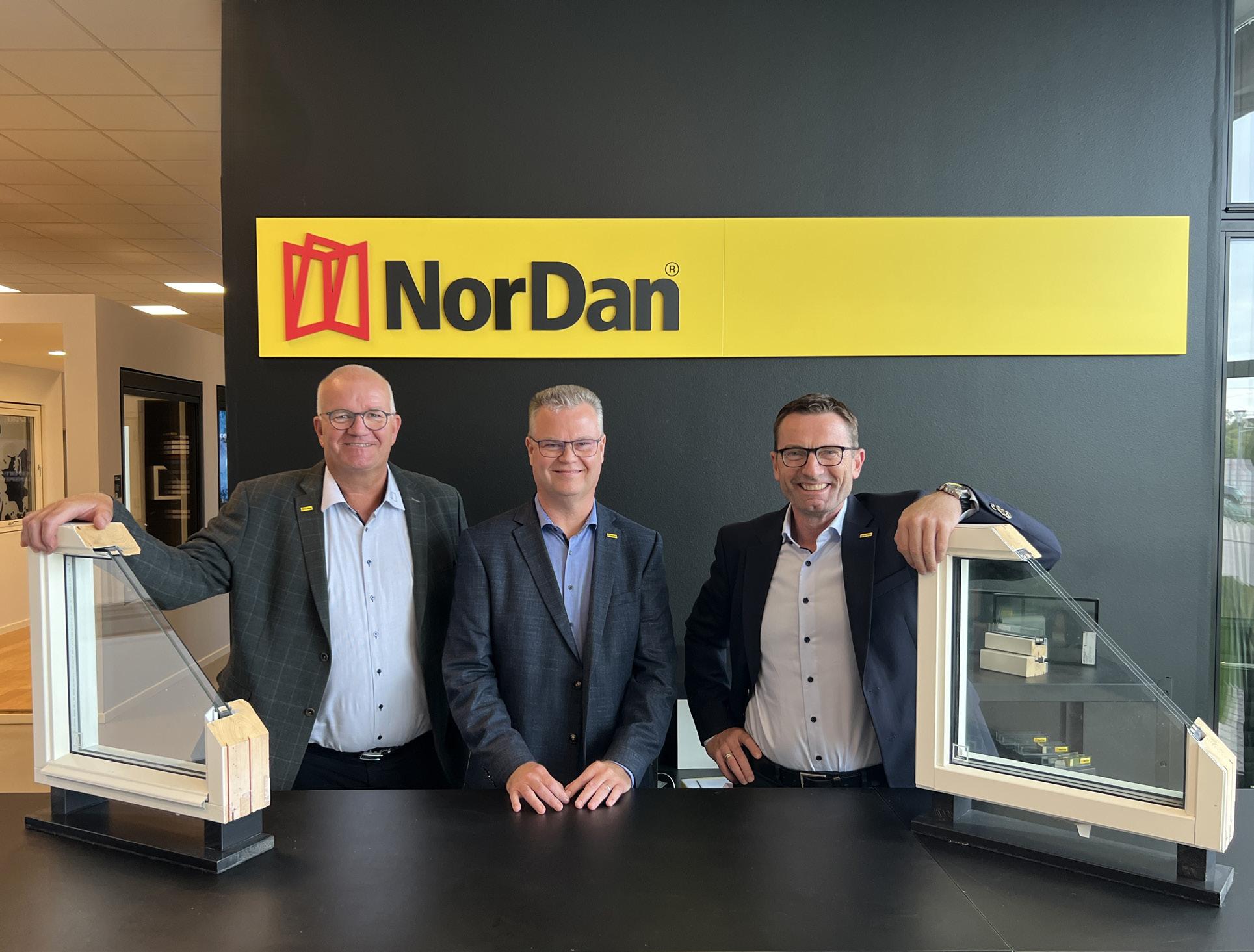

SUSTAINABILITY REPORT 2024
NORDAN GRUPPEN AS
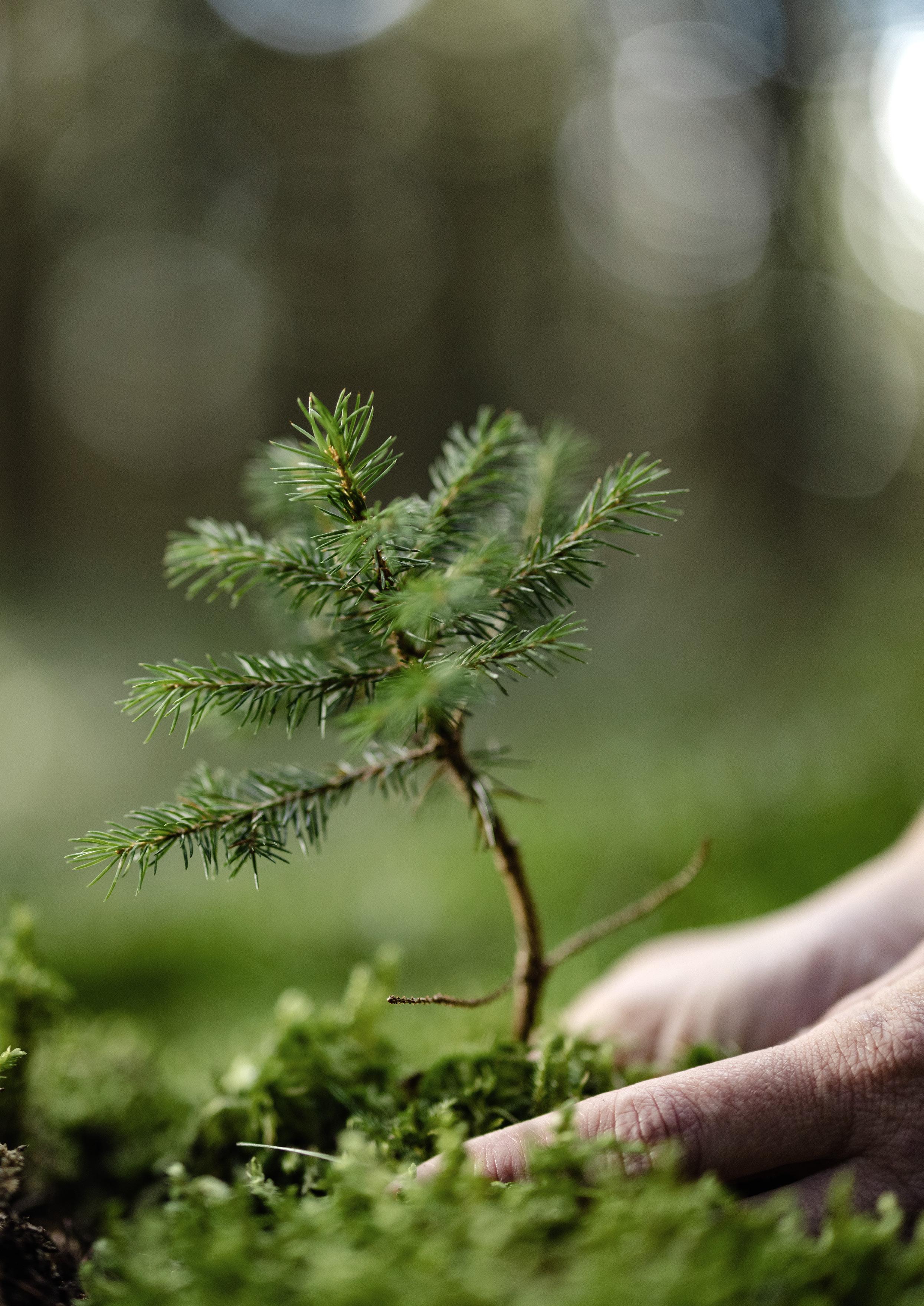
OUR SUSTAINABILITY STRATEGY


The sustainability strategy of the NorDan Group is to be an industry-leading company in sustainability, to reduce CO2 footprint by 50% in 2030 and to contribute to the green transition by offering the most sustainable windows and doors in the market. We engage the whole NorDan organisation as well as suppliers and customers in realising this strategy.
STATEMENT FROM THE CEO
NorDan Group is committed to a clear sustainability strategy aimed at offering the most energy-efficient windows in our six main markets and manufacturing windows and doors with the lowest possible carbon footprint at our 12 factories. This strategy is actively pursued across all NorDan entities and at the Group level.
Our NorDan sustainability model with its five dimensions, is practical and focuses on key areas, including customers and employees. This year’s sustainability report highlights our climate account reporting on all three scopes, aligning very well with our industry-leading Environmental Product Declarations (EPDs) for our windows and doors. I am also pleased to see the very good work we have done on compliance and management system as part of our work on sustainability.
In 2025, NorDan will continue to drive improvements in all five sustainability dimensions through various projects and innovations.
Dag Kroslid CEO, NorDan Group
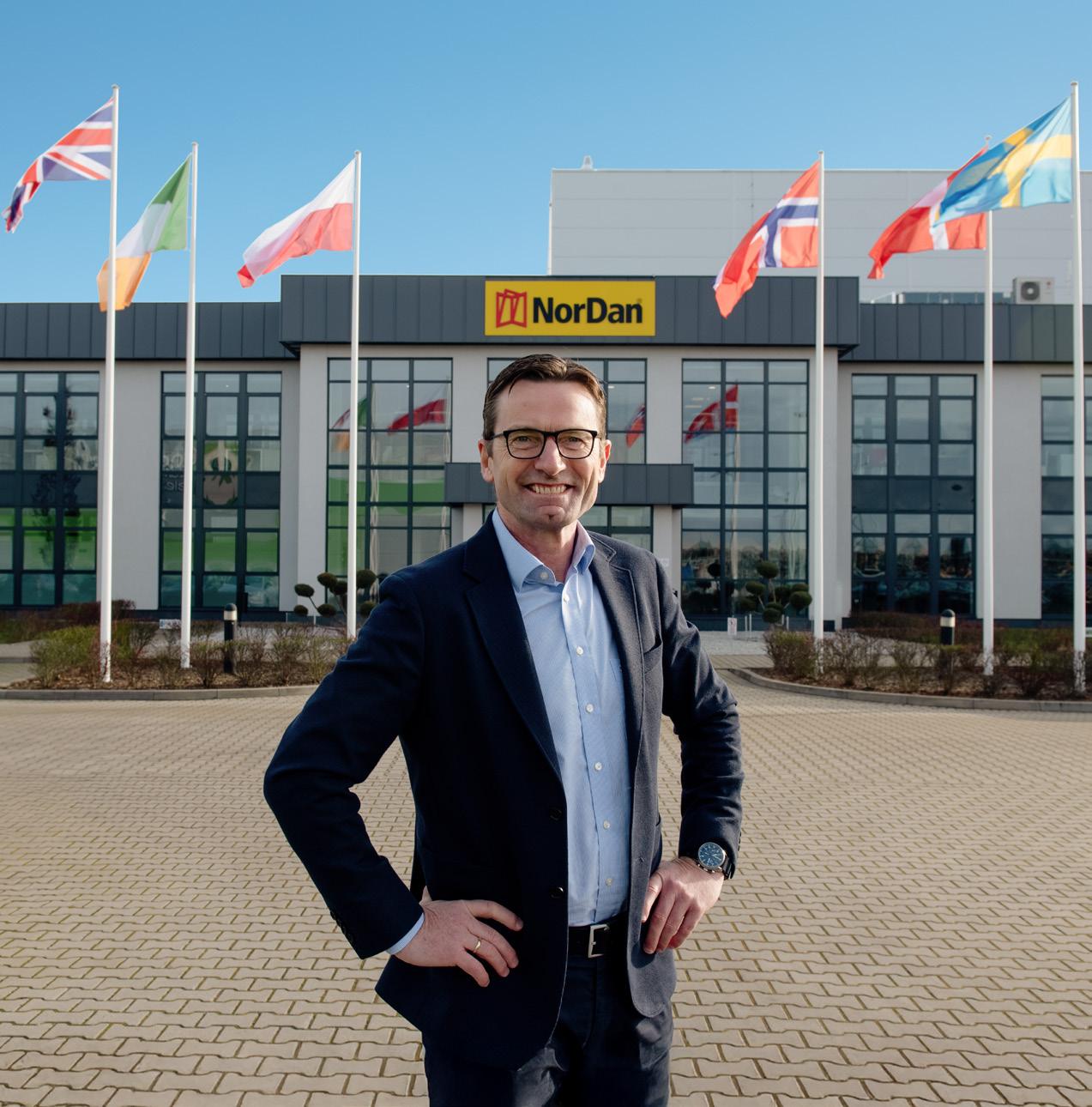

CHAPTER 1: SUSTAINABILITY AND THE NORDAN GROUP

NORDAN GRUPPEN AS IS A RESPONSIBLE, SOLID AND MODERN COMPANY WHOSE OPERATIONS ARE BASED ON LONG-TERM
SUSTAINABILITY EFFORTS.
The company is family-owned, with long-term, industry-experienced shareholders, many of whom are actively involved in management and operations. NorDan has a decentralized structure with wholly owned subsidiaries, and is defined by a strong company culture, shared values, and a deep commitment to completeness — both internally and externally.
NorDan’s committed and skilled employees take pride in their work and are actively engaged in the local communities where the company operates.
NorDan actively promotes energy efficiency in buildings across its markets. For decades, its product range has been a benchmark in the industry for energy performance (U-value), as well as standards related to sound insulation, safety, and fire protection. The company continually invests in innovation and product development, working closely with suppliers and other stakeholders to deliver high-performing, sustainable solutions that meet future market demands.
NorDan continues to invest in innovation and development, working alongside suppliers and other stakeholders to provide the best possible solutions. NorDan is committed to reducing its own CO₂ footprint, with an ambition to achieve a 50% re -
duction by 2030 compared to 1990 levels, measured against comparable volumes. Sustainability—across ecological, social, and economic dimensions—has long been central to NorDan’s operations, reflected both in how the business is run and in the products it delivers. This commitment is reflected in the business idea of NorDan Group and its subsidiaries: “NorDan is sustainable and a leader in the development, marketing, production, and supply of environmentally friendly and secure windows and doors with accessories.”
NorDan Group manufactures over 600,000 windows and doors annually for its core markets in Norway, Sweden, Denmark, the United Kingdom, and Ireland.
The Group operates across 9 countries with 32 sales offices, administrative centers, and 12 production facilities, strategically located to serve key markets efficiently.

































600.000
The NorDan G roup manufactures more than 600.000 windows and doors annually to the main markets in Norway, Sweden, Denmark, UK and Ireland.
4 STRATEGIC FOCUS AREAS RECENT YEARS
• P rofitable Growth
• Sustainability
• Quality Management
• Focus on Safety first
BILLION
In 2024, NorDan Group AS had a turnover of 5.0 billion NOK and a Operating EBITA margin of 11.1% 5.0
12 FACTORIES
4 in Norway 3 in Sweden 2 in Poland 1 in Denmark 2 in Lithuania
COUNTRIES 32 09 SALES OFFICES, ADMINISTRATION
13
• NorDan AS (Norway)
• NorDan Rubicon AS (Norway)
• NorDan Vidsyn AS (Norway)
• NorDan AB (Sweden)
• NorDan Vinduer A/S (Denmark)
• NorDan Island EHF (Iceland)
99 YEAR CELEBRATION
For nearly a century, NorDan has been a pioneer in windows and doors, combining Scandinavian design with durability, sustainability, and innovation.
• NorDan UK Ltd . (United Kingdom)
• NorDan Vinduer Ltd . (Ireland)
• NorDan Sp . z o .o . (Poland)
• NorDan UAB (Lithuania)
• NorDan Trading Ningbo (China)
• Viking Industrier UAB (Lithuania)
• ID Lock AS (Norway) NORDAN GROUP COMPANIES
+2.4K
EMPLOYEES
Norway (743)
Poland (870)
Sweden (283)
Lithuania (139)
UK (165)
Denmark (125)
Ireland (100)
China (20)
PERFEKT SAMSPILL
Sustainable development has guided the NorDan Group since 2001 under the principle of “Perfekt samspill.” This philosophy informs NorDan’s internal operations, its partnerships and the design of its products. By encouraging seamless cooperation among employees, representatives and suppliers, backed by clear priorities, modern technology and efficient workflows, NorDan ensures that every stakeholder remains both engaged and informed.
NorDan strives to anticipate customer needs and earn their trust. Its windows and doors unite elegant design with practical performance, durability and energy efficiency to ensure lasting comfort and value. Environmental responsibility underpins every step of the process. NorDan’s timber, wood-aluminum and aluminum products are engineered for high performance and extended service life, reducing resource demand over time. The company collaborates closely with suppliers to develop partnerships that reinforce its leadership in sustainability and innovation.
Corporate Social Responsibility
Corporate social responsibility is a core element of NorDan’s identity. We invest locally in employee health, career development and diversity, and extend our social commitment through community initiatives. These include apprenticeship programmes at our Norwegian factories, partnerships with Save the Children International, support for the NorDan Cultural Fund in Lund Municipality, and sponsorship of youth teams and associations. By backing these causes, NorDan strives to remain a responsible, inclusive and attractive employer.
Energy efficiency and product benefits
According to Enova, windows account for just 5 to 10 percent of a home’s total exterior surface yet can be responsible for up to 40 percent of its heat loss. In older homes with single glazing or poorly insulated windows, warm indoor air can escape and
cold air can enter, driving up energy consumption and reducing comfort. Modern, energy-efficient windows, especially well installed triple-glazed units with low U-values, dramatically cut thermal losses, improve sound insulation and eliminate drafts. Even the most advanced window cannot perform optimally if it is poorly installed or lacks sufficient insulation around the frame. By choosing high-quality, correctly fitted windows and doors from NorDan, homeowners can significantly reduce their energy use, lower heating costs and help meet national climate targets.
Wood as a sustainable material
Wood ranks among the most sustainable building materials when considering upfront carbon emissions from production and installation. Sourced from certified sustainable forestry, wood carries a negative carbon footprint because it captures and stores CO₂ from the atmosphere—nearly fifty percent of its dry weight. NorDan’s timber windows and doors are engineered for extended service life, further minimizing their environmental impact. Compared with non-recycled aluminium or PVC frames, our wooden frames deliver a much lower initial carbon footprint, while components such as glass, fittings and gaskets have similar footprints across different materials.


Innovation and international recognition
In 2022, NorDan launched the GreenTech product range to help customers make more sustainable choices. This concept includes climate positive features such as planting one tree for every unit sold and guaranteeing carbon neutral delivery, measures that reduce both the direct environmental footprint of our products and the broader impact of the construction sector.
Following this, NorDan initiated the GreenTech 2.0 project, which focuses on further reducing carbon emissions by enhancing the environmental performance of the products. Building on the insights and results from 2024, a GreenTech 2025 follow-up will be launched with an even stronger emphasis on material innovation, durability, and circularity. This next phase will introduce new product improvements and partnerships
that support a low-carbon, future-ready building industry.
NorDan’s commitment to sustainable construction has attracted international attention. Our NTech timber products were featured in a carbon neutral house showcased at COP26 in Glasgow, demonstrating how high performance wood solutions can contribute to global climate targets. In September 2021, NorDan AB presented its sustainability initiatives at the ninth International Conference on Sustainable Development, while our development of 3D printed bio composite products has earned international awards for innovation in low carbon materials. These recognitions highlight NorDan’s role as an industry leader in both product innovation and environmental stewardship.
To accelerate sustainability driven innovation across the Group,


Figure 2: Zero Carbon House Project fra utstillingen på COP 26 i Glasgow i 2021. Kilde: Roderick James Architects.
NorDan opened an Innovation Centre in Tanum, Sweden, in 2022. This facility showcases circular product concepts, digital tools for lifecycle management and alignment with the United Nations Sustainable Development Goals. By bringing together cross functional teams, external partners and research institutions, the Innovation Centre fosters a collaborative environment where new ideas, such as next generation GreenTech components and recycling solutions can be tested, refined and scaled. Similar centres are being considered for other subsidiaries to replicate this culture of knowledge sharing and continuous improvement.
Sustainability reporting and governance
NorDan AB was the first company in the Group to publish a sustainability report in 2017. In 2018 NorDan launched our ecoDigital Ready™ strategy, laying the foundation for Group wide efforts focused on seven selected United Nations goals and integrating sustainability with digitalisation. Since then, the Group has shared shared best practices extensively and collaborated with academic and regional institutions. In spring
2022, NorDan AS introduced a sustainability action plan towards 2030. In 2023, NorDan Gruppen AS published its first consolidated sustainability report based on the 2022 business year and set the clear targets for sustainability towards 2030.
NorDan ensures ongoing development and strengthens competence across the organisation by holding regular Sustainability Coordination Meetings with representatives from all subsidiaries. These sessions, led by the Chief Sustainability Officer, establish alignment around key priorities, build internal capabilities and guide the Group’s next steps on its sustainability journey. The CEO also highlights strategic sustainability initiatives in company-wide updates, reinforcing the importance of environmental and social responsibility as central to NorDan’s long-term direction.

STATEMENT FROM THE CHIEF SUSTAINABILITY OFFICER
At NorDan sustainability is not a separate initiative but the foundation of how we think, act, and grow. In 2024 we continued to strengthen our position as a sustainability leader in the window and door industry by combining innovation, responsibility, and long term thinking across our value chain.
This year’s report reflects the breadth and depth of our efforts—from reducing our carbon footprint through waste reduction initiatives, increased use of recycled aluminium, and renewable energy investments, to advancing social sustainability through inclusive hiring, education, and community engagement.
Our five dimensional sustainability model ensures that we address ecological, social, and economic dimensions while also focusing on our employees and stakeholders. This holistic approach is embedded in our governance, supported by strong local leadership, and driven by a shared commitment to “Perfekt samspill.”Looking ahead we will continue to build on this foundation.
Sustainability is a shared responsibility. I want to thank all NorDan employees, partners, and stakeholders for their dedication and contributions. Togheter, we’re creating positive impact that lasts.
Smiljana Divjak CSO, NorDan Group
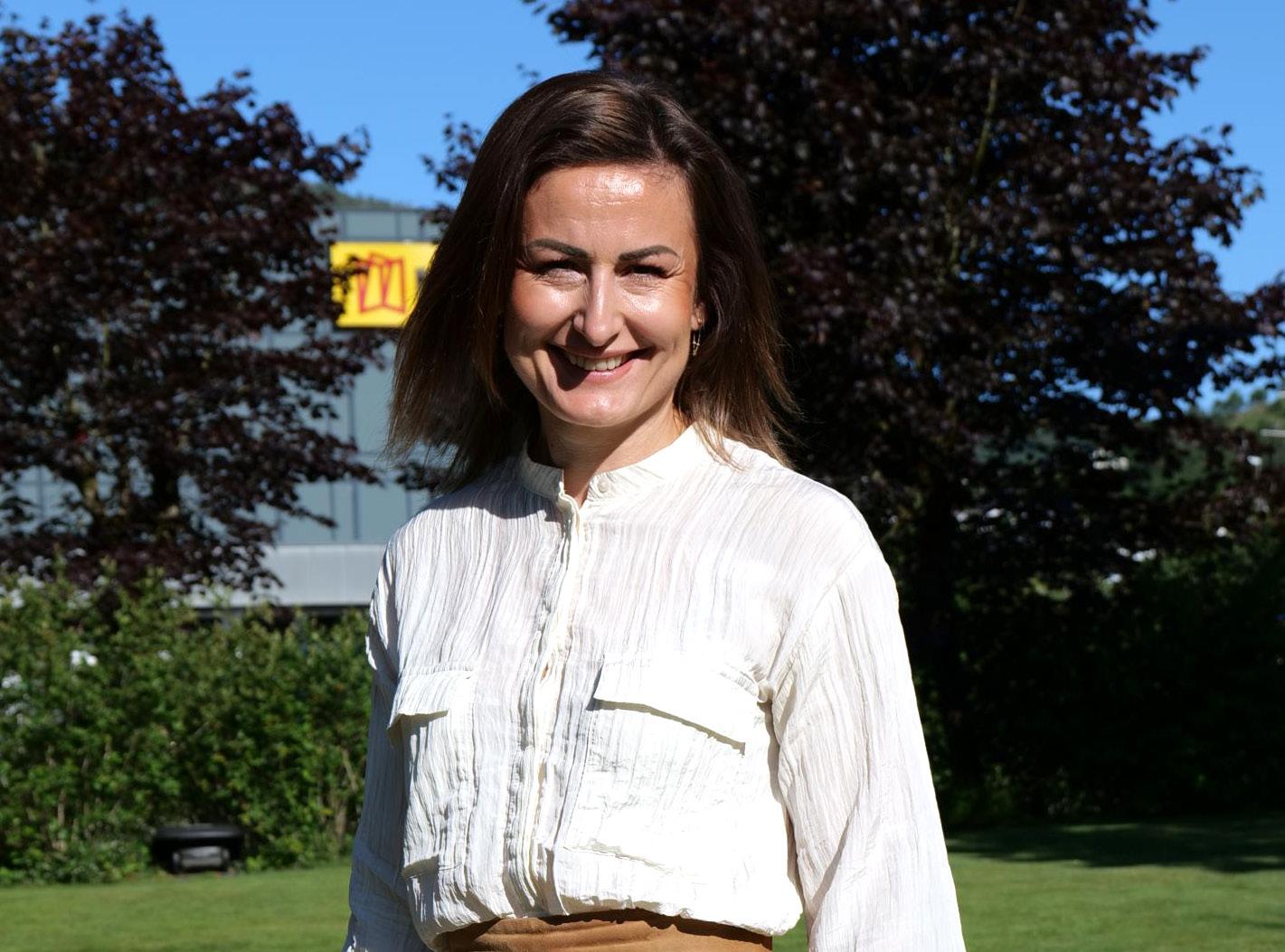
NorDan and the European Green Deal: Aligned for Impact
The European Green Deal is the European Union’s most ambitious plan to reach net zero greenhouse gas emissions by 2050 and secure a circular, pollution free and equitable economy. Its holistic approach covers energy, industry, biodiversity, transport, agriculture and the built environment. NorDan’s business model and sustainability strategy align closely with several core pillars of the Green Deal.
NorDan’s main contribution is delivering high performance, energy efficient windows and doors. The Group's products help reduce operational energy consumption in buildings. Buildings are one of the largest sources of carbon dioxide emissions in Europe. By cutting heating and cooling needs, we support national and European efforts to meet the revised Energy Performance of Buildings Directive.
Through investments in material innovation such as 3D printed bio composites and timber from certified sustainable forestry,
NorDan lowers embodied carbon and advances more circular manufacturing practices. NorDan works on recycling solutions for used windows and doors. These efforts address one of the most urgent challenges in construction. The GreenTech product line and pilot recycling initiatives demonstrate our commitment to resource efficiency and pollution prevention.
NorDan contributes to the EU’s clean energy objectives by reducing emissions across operations and logistics. A hydropower plant in Norway provides renewable electricity for manufacturing, and solar panels at key sites increase the share of self-produced clean energy. Across Scandinavia, certified renewable electricity is purchased for all production facilities, ensuring green power throughout the network. These measures reduce operational carbon emissions and demonstrate NorDan’s commitment to the energy transition. With the GreenTech product line, NorDan guarantees carbon-neutral delivery, aligning logistics with the EU’s ambition for smarter, more sustainable transport and decarbonised value chains.
NorDan and the European Green Deal
Advancing Circular Economy andResourceE ciency
Key areas of contribution
1. Improving energy efficiency in buildings
NorDan provides long lasting windows and doors with low U values that significantly reduce energy consumption in homes and buildings. This fully aligns with the Energy Performance of Buildings Directive and the Renovation Wave initiative.
2. Switching to renewable and self produced energy
NorDan invests in clean energy through solar panels and its own hydropower plant in Norway. NorDan also uses Guarantees of Origin for renewable electricity across our production sites to support the EU’s clean energy transition.
3. Advancing circular economy and resource efficiency
Through GreenTech 2.0 and return schemes for used windows and materials, NorDan promotes recycling and reuse. These efforts help close the loop in the construction sector and reduce waste.
4. Greener and smarter manufacturing
With energy efficient machinery, reduced volatile organic compound emissions and low carbon materials such as ORAÉ glass and 3D printed bio composites, NorDan supports the decarbonisation of industry.
5. Supporting sustainable finance and transparency
NorDan uses taxonomy aligned reporting, environmental product declarations and digital product passports to provide transparency and enable responsible investments. The company also prepares for upcoming regulations such as the EU Deforestation Regulation to ensure compliance in our timber supply chains.
6. Building a fair and inclusive green transition
NorDan promotes health, safety, diversity and education throughout the organisation. By ensuring that the green transition is socially sustainable and inclusive, NorDan helps create equitable opportunities in the communities where we operate.
SwitchingtoSelf-ProducedRenewableand Energy
Greener and Smarter Manufacturing
BuildingaFairand Inclusive Green Transition Supporting Sustainable Financeand Transparency
Figure 3: NorDan Group’s alignment with the European Green Deal’s key impact areas.
NORDAN’S TARGETED UN SDGS
NorDan’s sustainability strategy is built on the belief that long-term business success goes hand in hand with environmental and social responsibility. The company actively supports and works towards several of the UN Sustainable Development Goals (SDGs), with a particular focus on Goals 3, 5, 8, 9, 11, 12 and 17.
NorDan promotes decent working conditions (SDG 8) that foster sustainable economic growth, long-term job creation, and local value creation. As a major employer in rural and industrial communities, NorDan contributes to strengthening regional development while producing robust, resource-efficient products that support sustainable cities and communities (SDG 11).
Health, safety, and well-being are key priorities. NorDan supports SDG 3 by maintaining a safe and inclusive work environment, with low absenteeism and a strong track record in occupational safety. The company also works systematically towards gender equality (SDG 5) by ensuring equal treatment, fair opportunities, and inclusive policies regardless of gender, identity, or background.
Innovation is essential to accelerating progress. NorDan supports SDG 9 by investing in product development, new materials, and circular solutions such as 3D-printed Bio composites and recycling initiatives. These efforts are often carried out in partnership (SDG 17) with customers, suppliers, and research institutions. For NorDan, collaboration is not only a means but a guiding principle in how sustainability is delivered. The Group’s approach is supported by an overarching sustainability strategy, which includes clear goals for improvement through our people, products, partnerships, and projects. This strategy is further structured around four focus areas: local values, focus on people, resource efficiency, and implementation through partnerships. These are directly linked to the prioritized SDGs and rooted in NorDan’s company values.
To clarify the foundation for this strategic direction, NorDan has identified five core reasons—or “Whys”—for our strong commitment to sustainability:
1. Our Code of Conduct and ethical foundation, which commits us to responsible business practices and integrity.
2. The expectations - NorDan places on ourselves and those the company works with, including customers, suppliers, and society.
3. Evolving regulatory frameworks, especially within the EU, which demand greater transparency, documentation, and performance.
4. Our social responsibility, particularly in the local communities where NorDan operate and where it has a long-term presence.
5. The recognition that sustainability is a driver of competitiveness, helping it to innovate, attract talent, and stay relevant in a changing market.
NorDan’s ambition is to be an industry leader in sustainability. NorDan aim to reduce our carbon footprint by 50% by 2030 and contribute to the green transition by offering some of the most sustainable windows and doors on the market. Achieving this requires commitment from everyone in the organization, as well as close cooperation with suppliers and customers.
NorDan Gruppen works with the UN Sustainable Development Goals
Local values
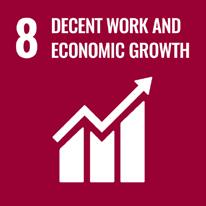

Decent working conditions promote sustainable economic growth, a positive factor for the single human and work environment as a whole. Our operations contribute to employment and economic and welfare development over time.
NorDan are conscious of our role as an important employer in our local communities. NorDan take social responsibility by manufacturing robust and sustainable products with a minimum of resources.
Resource efficiency
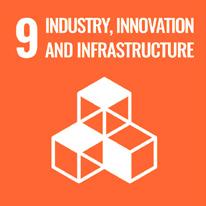

A sustainable infrastructure generates positive effects and promotes economic growth. NorDan operate with a high degree of resource efficiency. Environmentally friendly techniques and industrial processes supports a sustainable development.
NorDan strive to provide resource efficient and energy saving products, manufactured in a sustainable manner. NorDan strive to create a safe, circular economy where materials may be reused and/or recycled without harm to either the environment or people.
People focus


NorDan support each employees’ well-being and work continuously with workplace improvements. NorDan are a safe, health-promoting and good place to work with low absence and few serious accidents.
The equality approach begins with the equal treatment of all women and men, regardless of identity, religion, functional ability or age. Everyone is offered the same opportunities, so their personal resources are fully utilized.
Implementation and partnership
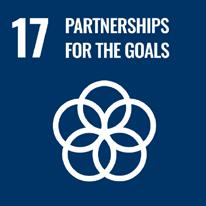
To create a positive impact on the construction industry and to succeed with the sustainable development goals the NorDan Group work focused on implementing specific improvements and innovation. To succeed NorDan take on active roles in partnerships with our suppliers, customers and research and industry clusters. Goal 17 is both our goal and our method to succeed with the NorDan Group sustainability progress.
RESPONSIBILITY AND ORGANISATION FOR SUSTAINABILITY
Overall responsibility for sustainability in NorDan Gruppen AS rests with Group Management and the Board of Directors. A Chief Sustainability Officer (CSO) leads strategy development, coordinates cross company initiatives, and ensures policies are implemented throughout the organisation, with active support from the CEO and the rest of the Group Management Team.
NorDan’s decentralised structure assigns day to day sustainability ownership to each subsidiary’s general manager and local management team; several subsidiaries even have a dedicated sustainability manager. Subsidiary boards, where the Group CEO and other senior executives represent NorDan’s owners, monitor and align local practices with Group wide strategy and regulatory requirements.
Key policies such as the Sustainability Policy, Environment Policy, Equality and Diversity Policy, Safety Policy, Code of Conduct, Whistleblower Policy, and Supplier Code of Conduct establish clear expectations for conduct and performance. Subsidiaries are encouraged to launch local improvement projects that address their specific contexts and stakeholder
needs. Sustainability responsibilities cascade from the CEO to subsidiary general managers, then to factory managers, sales office heads, and purchasing and administrative leaders. In practice, operational implementation happens through team structures within each business unit where departments track relevant metrics for example energy consumption, error and rework rates, and skills development, report deviations, and propose improvements. Teams are empowered to initiate their own sustainability projects, fostering engagement and local ownership.
Twice a year, Business Development and Sustainability forums bring together key personnel from all subsidiaries to share progress on sustainability and digitalisation. These gatherings

serve as platforms for best practice exchanges, initiative showcases, and dialogue around cross cutting challenges.
Since 2018 two internal centres of excellence for environmental documentation and product digitalization has supported NorDan’s ability to deliver market required documentation such as product specific CO₂ data and energy performance metrics, and to integrate sustainability into new product designs. This expert team collaborates closely with product development across the Group, ensuring transparency and efficiency from the outset.
As a family owned company with 27 shareholders, many of whom have shaped NorDan’s values over decades, long term responsible development is deeply embedded in our culture. Financial resilience has enabled international expansion, while ecological and social responsibility remain constant priorities. Locally, shareholders and NorDan’s head office in Moi, Norway, have together funded community projects in sports, volunteering, and cultural initiatives. The NorDan Cultural Fund in Lund Municipality exemplifies this commitment to building strong, vibrant local communities.
Figure 4: Participants at the Group Directors Meeting (GDM) at Moi on 25 – 26 March 2025.
A CENTURY OF NORDAN

NorDan is approaching its 100th anniversary in 2026, marking nearly a century of quality, innovation, and sustainability in the windows and doors industry.
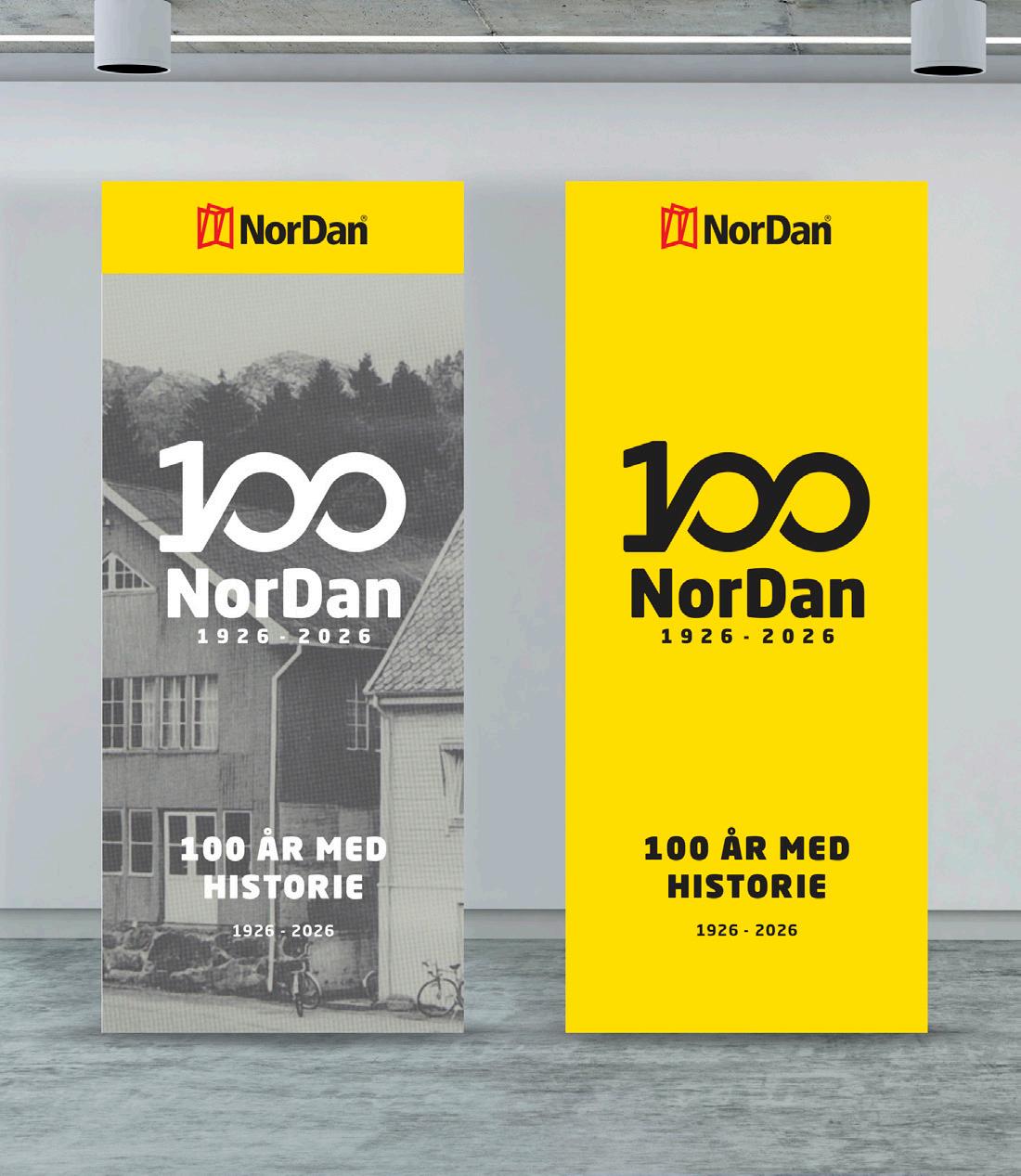
MODEL AND SYSTEMS FOR SUSTAINABILITY WORK
''Perfekt samspill'' at NorDan also refers to the balanced integration of social, ecological, and economic sustainability. In addition to these three classical pillars, NorDan’s sustainability approach includes two additional dimensions: one focused on customers and stakeholders, and another dedicated to employees. Together, these form NorDan’s five-dimensional sustainability model (Figure 5), which is supported by a KPI framework that defines key metrics for each dimension. These indicators are actively monitored and targeted for continuous improvement over time.

NorDan has well-established management systems for both quality and environmental performance. Most subsidiaries are certified according to ISO 9001:2015 (Quality Management) and ISO 14001:2015 (Environmental Management). Additionally, NorDan UAB holds ISO 45001 certification for Occupational Health and Safety, and several other subsidiaries are working towards similar certifications. The factories within the NorDan Group operate in accordance with these standards to ensure consistent performance and compliance across all markets.
Customers & stakeholders
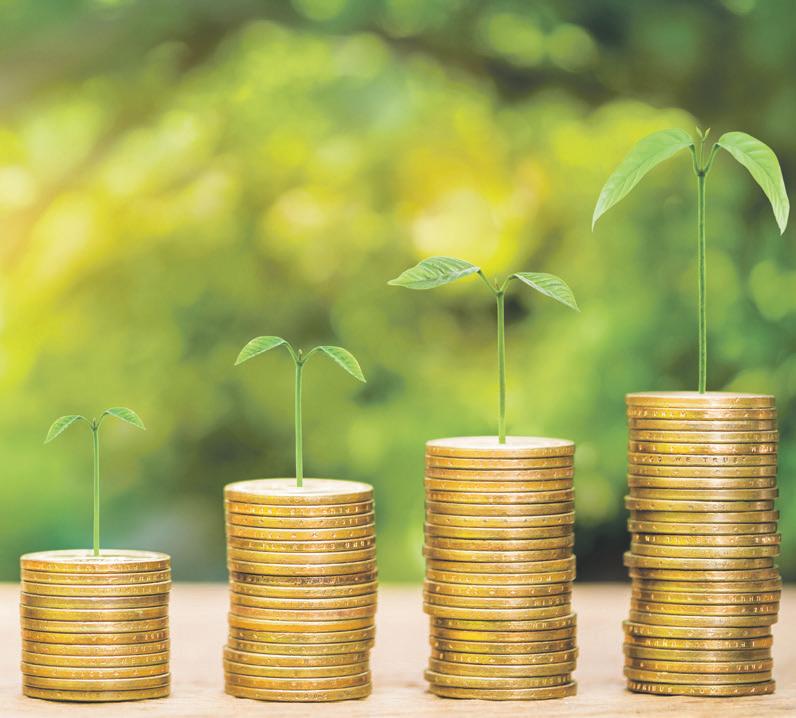

Economic sustainability
Coworkers



Ecological sustainability

Social sustainability
NorDan Gruppen AS complies with both national and international certifications and approval schemes relevant to the production of windows and doors. The factories producing timber-based products are FSC® and PEFC™ certified, ensuring the use of responsibly sourced wood from sustainably managed forests. FSC (Forest Stewardship Council) and PEFC (Programme for the Endorsement of Forest Certification) are the two leading international forest certification systems.
NorDan’s products are among the most environmentally responsible on the market, supported by robust environmental documentation. This includes third-party labels such as the Nordic Swan Ecolabel, Basta, and particularly EPDs (Environmental Product Declarations). The EPD is the most advanced and standardized form of environmental documentation in the industry.
In 2014, NorDan launched generic EPDs for key product categories. Over the past three years, the company has collaborated strategically with EPD-Norway, LCA.no, and Treteknisk to develop dynamic EPDs at product line level. This solution launched in 2024 as an industry first—provides customers with product-specific environmental data, powered by large datasets and automated calculations.
In parallel, NorDan launched its own climate calculator in 2020, which estimates potential energy savings when upgrading to windows and doors with improved U-values. This aligns with NorDan’s core message: “The most environmentally friendly energy is the energy you don’t use.”
NorDan benefits from its strong focus on timber-based products, which are considered among the most sustainable options
Figure 5: The NorDan sustainability model.
available. At the same time, the company offers aluminium products and has worked systematically to select the most environmentally responsible solutions within that segment.
In line with the Group’s sustainability strategy, NorDan has decided to phase out uPVC products, citing low demand and a strategic commitment to prioritising materials with lower environmental impact.
Recognising that sustainability is a shared responsibility, NorDan emphasizes the importance of collaboration in all aspects of its sustainability work.
In line with UN Sustainable Development Goal 17, the company actively engages with customers, suppliers, and stakeholders to drive innovation and improvement. NorDan participates in national forums and industry associations focused on quality and sustainability, and maintains strong relationships with leading sustainability organisations, not only to stay informed, but to contribute meaningfully to collective progress.
LEADER IN ENERGY EFFICIENT WINDOWS AND DOORS HIGHLIGHTS THROUGH THE YEARS 2014-2024
2014
NorDan publishes its first 5 generic EPDs.

2020
Awarded “Most sustainable prod- uct on BIMobject”
2022
Launches GreenTech in the Norwegian market, providing carbon compensated transportation and low-carbon aluminium
2017
First producer to document windows according to eBVD2015.
2021
Wins the international “Quality Sustainability Award” for the world’s first 3D printed window.
2024
Introduces ORAÉ® low-carbon glass with just 6.64 kg CO₂e/m², cutting the footprint by 42 % versus Planiclear® and delivering 30–40 % lower embodied carbon than standard glazing.
2023
NorDan is awarded the CIBSE Building Perfor- mance Award for out- standing embodied carbon and strong docu- mentation.
2022
Achieves Nordic Swan certification on all NTech products.
2023
NorDan launches dynamic EPDs allowing standardised product specific emissions documentation.
COMPETENCE CENTER ENVIRONMENTAL & DIGITAL PRODUCT INFORMATION (CC EDPI)
To meet increasing demands for sustainability and digitalization from both the market and regulatory authorities, NorDan has established a dedicated Competence Center – CC EDPI. The center ensures that the NorDan Group is well-prepared for future requirements related to environmental data and digital product information.
By focusing on environmental documentation, digitalization, and industry collaboration, CC EDPI acts as a driving force for innovation and development across the organization. The center connects sustainability with technology, supporting both NorDan’s strategic goals and customer expectations for transparent, accessible, and accurate product information.
Bringing together expertise in environmental data, certification, BIM, and digital product information in one cross-functional environment strengthens NorDan’s ability to develop solutions that meet today’s expectations and help shape a more sustainable construction industry for tomorrow.
CC EDPI works with development and administration in 3 different areas. Environmental data & certification, Digital product information and BIM & Digitalization.
CC EDPI has been working throughout the year to prepare the NorDan Group for our stakeholders’ upcoming requirements in sustainability and digitalization. This involves driving the digitalization of product information and adapting it to market and user demands and expectations. Training sessions and pilot projects have also been conducted together with others in our industry.
NorDan is a leading player in environmental documentation within our industry through the company’s long-term work in mapping and declaring the environmental performance of produced products. Work is ongoing in the industry and will continue to require the ability to digitally provide information further down the value chain. The information to be provided includes not only product properties but also sustainability information. NorDan has taken the first steps to meet upcoming requirements with digital product passports DPP through work with GTIN and labelling leading the customer to NorDan’s information portal NPlace.
In 2024, work began on re-verifying the life cycle analysis for the EPD generator. Work also began on expanding the tool to include products produced by NorDan’s factories in Rudköbing and Tanum. By regularly revising its LCA for each factory, NorDan can identify areas for improvement and make informed decisions about development and improvements

at each factory. An important aspect is working with actors throughout the value chain so that the information in the LCA is as specific and reflective of reality as possible. This is instead of relying on market and industry general data, which often covers more product groups and less specific information.
Through the sustainability work in the NorDan group and supplier-specific data on incoming materials such as low carbon aluminium, recycled glass, and guarantee of origin certificates (GoO) for renewable electricity at NorDan factories, the company will be able to document products with a lower climate footprint than before.
CC EDPI continuously monitors requirement updates from markets and customers, which is done together with the industry through own research, national and international forums. The requirements for digitally accessible environmental and product information will increase as the EU directives Eco design for Sustainable Product Regulation (ESPR) and the resulting new Construction Products Regulation (CPR) are developed and come into force. The EU’s Deforestation Regulation (EUDR) and Packaging and Packaging Waste Regulation are also various regulatory changes that CC EDPI closely follows.
CC EDPI has participated in various national and international collaboration and pilot projects in important areas such as data templates and GS1’s working groups on GMN and DPP. These are an important part of the digital communication of various product properties. Several training initiatives have been carried out in digitalization and sustainability. During the year, the Competence Centre represented NorDan in the Nordic Swan’s work to update criteria and requirements for Nordic Swan-labelled windows and doors.
DIVERSITY, EQUALITY AND INCLUSION
NorDan is committed to fostering a working environment based on diversity and inclusion. This commitment is anchored in the company’s core values, Equality & Diversity Policy, and overall sustainability strategy.
In recent years, increased focus has been placed on female leadership as a key driver of sustainable development. Strategic projects carried out in 2021 and 2022 aimed to promote gender equality and increase the share of women in leadership positions. Since 2021, NorDan has conducted annual surveys to monitor gender balance and gather employee feedback on diversity and inclusion. These surveys guide future improvement efforts across the organisation.
By 2024, women represented 29% of NorDan Gruppen’s total workforce. The proportion of women in management and
on company boards has also increased, supported by new appointments made early in the year. International Women’s Day is marked annually across all NorDan entities, reinforcing the importance of equality, diversity, and inclusion at every level of the organisation.
In 2024, NorDan Vidsyn, a social enterprise subsidiary of NorDan AS, expanded its operations and workforce. The company offers services with a strong sustainability focus and provides opportunities for individuals who face barriers to traditional employment.
Diversity in leadership and throughout the organisation remains a key strategic priority for NorDan going forward.

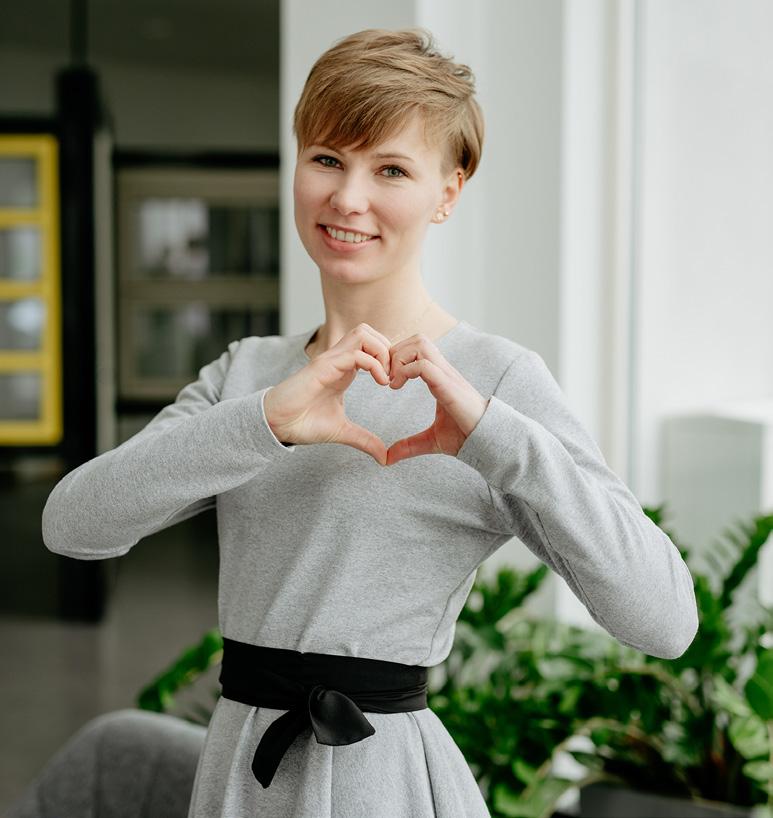

Figure 6: NorDan Spolka employees celebrating International Women’s Day.
SUSTAINABILITY AWARDS AND RECOGNITION
In recent years, the subsidiaries within the NorDan Group have attracted considerable attention and received awards for their sustainability work. Here are some examples from recent years:
NorDan Norway:
› Supplier of the year at a number of major customers
› NorDan has been named winner for a number of years and consolidated its position as a leading brand
› Apprenticeship company of the year (2017) in Rogaland, Rogaland County Council
› Apprentice company of the year (2022), Norske Trevarer
› In 2024, NorDan was honoured with six Supplier of the Year awards across different key customers.
NorDan UK:
› Building Performance Award (2024): Embodied Carbon Award, presented by the Chartered Institution of Building Services Engineers (CIBSE) .
NorDan Sweden:
› Lean Builder of the Year (2019), awarded by Lean Forum Bygg .
› Most Sustainable Product on BIMobject (2020), recognized by www .bimobject .com .
› Quality Innovation Award (2020), granted by the Swedish Institute for Quality.
› Quality Sustainability Award (2020), awarded by the International Academy for Quality.
› Recognition: Swedish Quality Award - Sustainable Success (2021) .
› NOVA Prize for Sustainability and Digitization (2022), awarded by TMF (Employer Organization for Wood and Furniture Companies) .
Sustainability is integral to NorDan Gruppen. Rooted in the value platform “Perfect Samspill,” it runs like a red thread through all products, work processes and the responsibilities that NorDan undertakes.
NorDan NTech timber windows and doors have been recognized with the European Quality Trade Mark by EOQ, the European Organization for Quality. This award is a significant acknowledgment of NorDan’s commitment to quality in all aspects of their products and operations. The EOQ established the European Quality Trade Mark to honor European companies and products that excel in quality-related matters. The criteria for this award include requirements for quality management systems, fiscally sustainable business operations, products primarily sourced from Europe, and high customer satisfaction.
NorDan’s achievement of this award is clear evidence of their dedication to maintaining high standards and delivering superior quality products to their customers.
Through involvement in and sponsorship of conferences focusing on sustainability in the construction industry, participation from Ireland, Denmark and the UK has brought NorDan good attention.
Recognition for Impact: NorDan Wins the Handlekraft Award
NorDan was honoured with the Handlekraftprisen 2025— an award that celebrates the most action-oriented and forward-thinking company in Western Norway. Presented at the Vestland Conference in Bergen by the Prime Minister of Norway, this recognition reflects NorDan’s long-standing commitment to innovation, sustainable development, and meaningful local and global impact.
The Handlekraft Award, established by the Agenda Vestlandet Foundation and Sparebanken Vest, is given annually to a company that demonstrates exceptional initiative, the courage to innovate, and a proven ability to turn ambitions into results. Candidates are nominated by regional chambers of commerce, and in 2025, NorDan was nominated by the Stavanger Chamber of Commerce.
The jury highlighted NorDan’s leadership in delivering energy-efficient windows and doors, our continuous development across twelve factories in nine countries, and our documented contributions to more sustainable construction. For NorDan, handlekraft—the ability to act with purpose—has been a deeply rooted value for more than 15 years. Winning the award is not
only a recognition of our company’s journey, but also of the daily efforts of our employees, the trust of our customers, and the support of our local communities. The Handlekraft Award is a powerful milestone as the Group move toward NorDan’s 100th anniversary in 2026.


Figure 7: NorDan executives, including the CEO and Chair of the Board, receiving the Handlekraft Award from Prime Minister John Gahr Støre.
THE CSRD DIRECTIVE AND WORK ON DOUBLE MATERIALITY ASSESMENT
The Corporate Sustainability Reporting Directive (CSRD) is the EU’s new sustainability directive requiring companies to report on environmental, social, and governance topics. Initially set to apply from the financial year 2024, recent changes through the Omnibus Directive have postponed the reporting obligation for NorDan Group by two years. This means that NorDan is now legally required to report in 2028 for the 2027 financial year. In addition to the timeline shift, the EU has proposed changes to narrow the scope and reduce the number of required data points, often referred to as CSRD 2.0. NorDan is closely monitoring these developments and will adjust its sustainability reporting accordingly, ensuring compliance with updated requirements while continuing to build robust internal systems for transparent and meaningful reporting.
In spring 2024 NorDan conducted a comprehensive double materiality analysis in line with the CSRD and the European Sustainability Reporting Standards. This process included engagement with key internal stakeholders, including group management, subsidiary leadership, employee representatives, procurement teams and operational staff, as well as external stakeholders. NorDan also analyzed market trends and competitor activities. in 2024 the assessment were updated by having further discussions with leaders and employees, consulting auditors and reviewing relevant megatrends and regulatory developments.
This assessment explains its double materiality process and methodology, clarifies roles and responsibilities, maps NorDan’s
value chain and catalogs the environmental, social and governance related impacts, risks and opportunities. By examining financial materiality, meaning how ESG issues affect our bottom line, alongside impact materiality, meaning how NorDan’s operations affect society and the environment, NorDan has identified the most critical issues to prioritize. On the environmental side, NorDan highlight climate change mitigation and adaptation, energy use, air pollution, hazardous substances, drivers of biodiversity loss, and resource inflows, resource use, resource outflows and waste. On the social side, NorDan focus on working conditions within NorDan and throughout the Group value chain, equal treatment and opportunity, end user safety and the rights of affected communities. In governance and business conduct NorDan emphasize corporate culture and ethical policies, anti-corruption measures and the management of supplier relationships.
The findings from this analysis are integrated into NorDan’s overall risk management framework, strategy and action plans. Follow-up responsibilities are shared across our executive leadership, sustainability coordinators in each subsidiary and designated functions such as purchasing, quality and human resources. With this work, NorDan confirms its commitment to meeting evolving demands in a systematic and responsible manner while positioning itself as a sustainable leader in the industry. Importantly, Group's double materiality assessment is not a one-time exercise but a dynamic approach that will be refreshed each year to reflect changes in the market, sustainability landscape, value chain and regulatory environment.
NorDan high level DMA matrix
Waste & resources
Informant/Important
Material Material
Water and marine resources
Informant/Important
› The yellow areas mark the material topics for NorDan
› A topic can be material because it has or potentially may have material impact(s) on people or the environment, because it represents a material financial
oppurtunity or financial risk to NorDan, or because it has both a material impact and a material financial risk/opportunity.
List of material topics as illustrated in the matrix
Environment
Climate change mitigation and adaption
Energy use
Pollution of air
Hazardous substances
Direct impact drivers of biodiversity loss
Resource inflows and resource use, resource outflows and waste
Social Own workforce working conditions
Own workforce equal treatment and opputunity for all
Working conditions in the value chain
Affected communities; economic, social and cultural rights
End user safety
Governance (Business conduct)
Corporate culture and business conduct policies Corruption and bribery
Corruption and bribery
Management of relationships with suppliers
Figure 8: Double Materiality Assessment NorDan Gruppen.
EUDR- PREPARING FOR THE EUROPEAN DEFORESTATION REGULATION
NorDan is actively preparing for the European Union Deforestation Regulation (EUDR), which will apply from 2025 and aims to reduce the EU’s contribution to global deforestation and forest degradation. The regulation requires companies to demonstrate, through detailed documentation, that the wood used in their products is both legally harvested and free from deforestation after December 31, 2020.
NorDan is already in a strong position to meet these expectations. All timber used in production is sourced from certified wood suppliers in Europe, where forestry is subject to rigorous environmental standards. NorDan only works with suppliers who can deliver FSC® or PEFC™ certification, providing assurance that the wood comes from responsibly managed forests with verified origin, legal compliance, and full traceability.
NorDan’s European supplier network is built on long-term relationships, quality control, and shared values around sustainability and accountability. By sourcing within Europe, NorDan significantly reduces the risk of deforestation-related violations, while also supporting local industries and reducing the carbon footprint associated with long-distance transport.
To meet the traceability requirements of the EUDR, NorDan
is now strengthening its internal routines for collecting, storing, and verifying supplier data related to origin, harvesting location, and forest management practices. This includes geolocation data, harvesting permits, and other evidence of legal compliance—helping ensure that all wood entering our value chain is not only certified, but also fully documented from forest to finished product.
This work also lays an important foundation for the implementation of digital product passports, which are being introduced across Europe as part of the EU’s wider sustainability regulations. These passports will provide customers, partners, and authorities with transparent, standardized information about a product’s materials, environmental performance, and legal origin. By ensuring solid documentation now, NorDan is future-proofing both our product offering and our sustainability strategy.
Ultimately, our early and proactive approach to EUDR compliance supports NorDan’s broader commitments: protecting biodiversity, respecting international laws, promoting sustainable forestry, and delivering reliable, high-quality products that meet the expectations of tomorrow’s market.

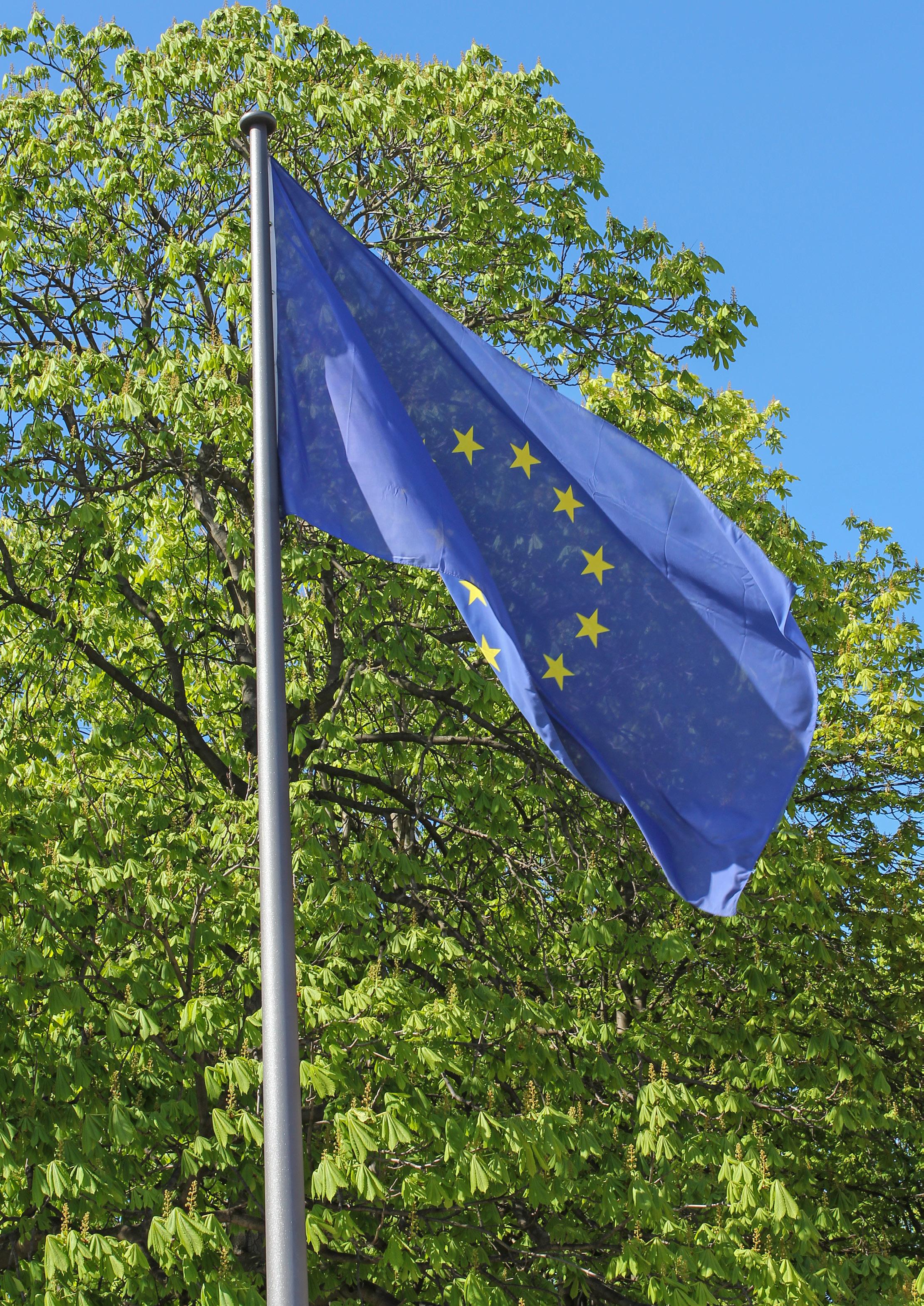
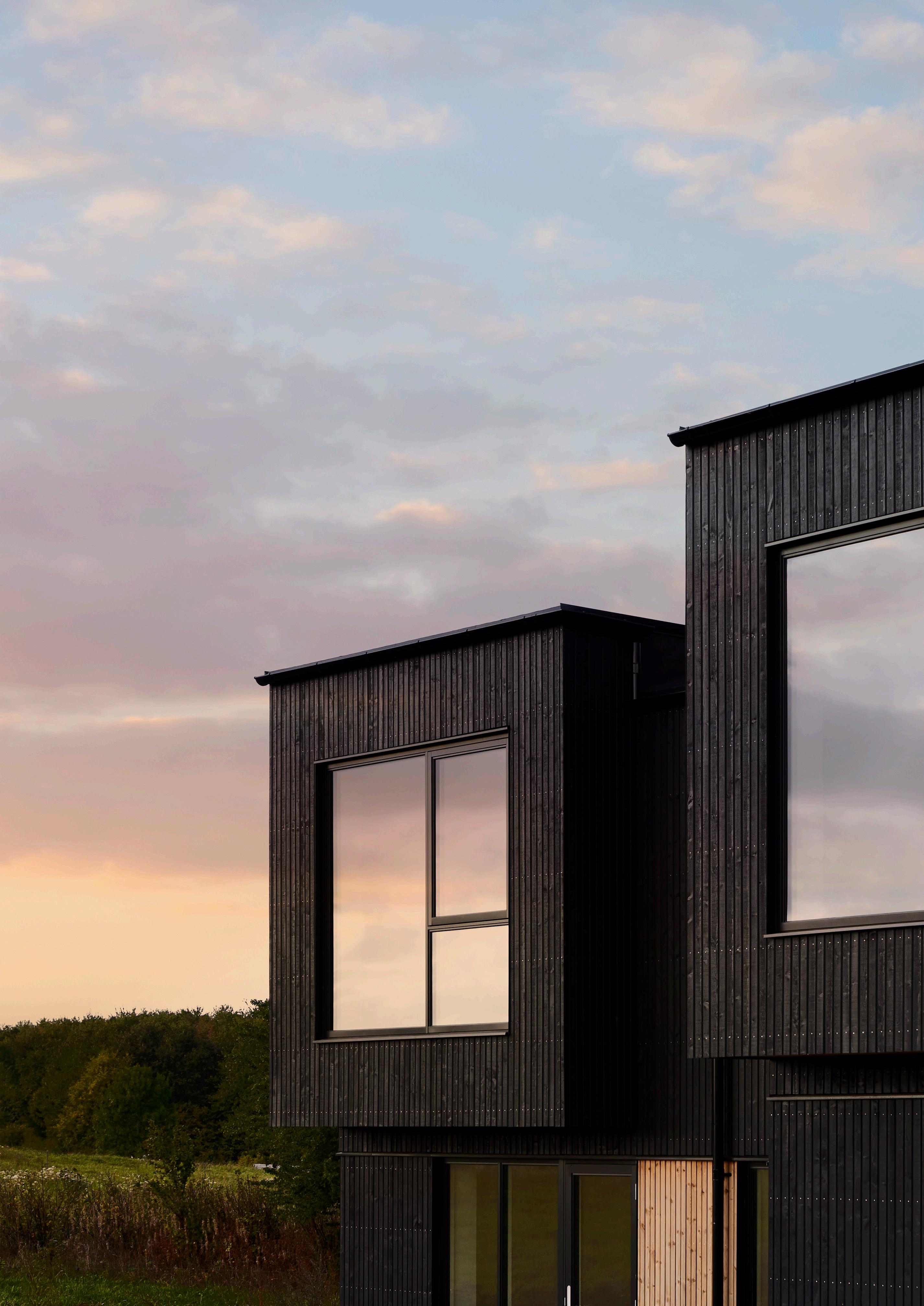
CHAPTER 2: SUSTAINABILITY AND PRODUCT LIFECYCLE ENVIRONMENTAL IMPACT

SUSTAINABILITY AND PRODUCT LIFECYCLE ENVIRONMENTAL IMPACT
Life Cycle Assessment work stands out as one of NorDan Group’s most important sustainability initiatives. It has been underway for several years and remains a core strategic focus for the company.

Figure 9: Overview and classification of the four main phases of product lifetime, according to ISO 21930. Source: www.woodworks.org/resources/ introduction-to-whole-building-life-cycle-as- sessment-the-basics/
As sustainability demands from customers, regulators, and society increase, it is becoming increasingly important to report products’ environmental impact in a transparent and verifiable way. One of the most central methods for doing this is Life Cycle Assessment (LCA), which forms the basis for Environmental Product Declarations (EPDs) and other sustainability tools.
An LCA is a systematic method for mapping and quantifying the environmental impact of a product or service throughout its entire life cycle from raw material extraction to production, use, and final disposal. Some of the gains by conducting an LCA is:
› Fact- and data-driven decision support and to identify areas for improvement in production and the supply chain.
› The ability to communicate environmental performance to customers and stakeholders in a credible way.
› Support for meeting legal requirements and standards, such as the EU’s CSRD directive and the new construction product regulation CPR.
The primary goal has been to document the carbon footprint of NorDan’s products and the emissions from production, logistics and administration. All development work has followed a systematic and fact based approach in line with EU- taxonomy and the official guidelines for life cycle assessment. The assessment covers four phases of a product’s life cycle: production, construction, use and end of life. The work adheres to ISO 14040 and ISO 14044. ISO 21930 defines the framework and requirements for environmental product declarations in the construction sector (see Figure 9).
Global warming potential measured in kilograms of carbon dioxide equivalents (kg CO₂e) is used to quantify the environmental impact of each phase. Figure 10 shows the total
Construction works assessment information
impact for a standard NorDan NTech Topswing reversible window with a reference size of 1230 by 1480 millimetres, a high volume product sold across all main markets. When made at the Wolsztyn factory in Poland with product code TG the impact is 236 kg CO₂e. The same window produced at the Otta factory in Norway under product code BG has an
Environmental impact
impact of 206 kg CO₂e. This difference reflects the cleaner energy mix in Norway.
All values are based on the most recent approved environmental product declarations and will be updated continuously as new life cycle data become available or after each third-party review and audit.
during the life cycle of a standard NTech Topswing window from Wolsztyn (TG) and Otta (BG) in reference size 1230x1480mm
ND NTech Villa Topswing reversible - BG
NTech Villa Topswing reversible - TG
Figure 10: The environmental impact across the four main phases in the lifecycle of windows and doors, from phase A to phase D for a standard NorDan NTech top-hung window (TG) in the reference size of 1230x1480mm. The overview is representative of most NorDan products, and NorDan has accurate data for all main products through the work on Environmental Product Declarations (EPDs). *Delivery to a construction site in Oslo is used as the reference value.
A1: RAW MATERIALS
NorDan has long maintained close, long-term partnerships with its suppliers. Many of today’s suppliers of timber, aluminium, and insulating glass have been partners for 20–30 years. This long-standing collaboration ensures a high degree of transparency in the supply chain. NorDan knows its suppliers well, and the relationships are characterized by joint development of new solutions and continuous improvement. The suppliers are primarily European and are recognized leaders in their fields, complying with both national and industry-specific regulations.
The use of specific supplier and material data in life cycle assessment (LCA) is an important part of achieving accurate, transparent and usable environmental assessments. This process begins with the identification of the product, components and their supplier to be assessed, followed by a comprehensive mapping of the materials and quantities used. This fundamental step ensures the development of a robust Life Cycle Inventory (LCI), which is the foundation of the entire LCA.
Suppliers are key stakeholders in this process, as they often have the most specific environmental data for upstream processes. The use of supplier-specific EPDs provides a good insight into the environmental impact on the supplier's materials, transports and production processes, which improves the
credibility and level of detail in the analysis. This is especially important when preparing Environmental Product Declarations (EPDs), where the difference between generic and specific data can significantly affect the result. In cases where supplier EPDs are unavailable, generic or industry average data can be used, although this should be minimized to maintain transparency and comparability.
NorDan has demonstrated that using supplier-specific data from Saint-Gobain Glass and their ORAÉ® a glass with a high proportion of recycled material in LCAs reduces the global warming potential (GWP) of certain products by up to 30% compared to the same product using standard glass.
NorDan has through a deliberate material selection strategy, reduced our carbon emissions by approximately 8,000 tonnes of CO₂e in 2024. This reduction is directly attributable to the consistent use of aluminium with verified low climate impact, as documented in supplier-specific Environmental Product Declarations (EPDs). This initiative exemplifies how strategic procurement decisions, in close collaboration with suppliers, can significantly contribute to climate targets while enhancing our environmental profile toward customers and stakeholders.
A1: Raw material environmental impact for an NTech Topswing window, TG and BG
Figur 11: Global warming potential (GWP) for the most important material layers on a NTech top-hung window TG from Wolsztyn and BG from Otta in reference size 1230x1480mm. The same raw material is used in both Wolsztyn and Otta. *NorDan uses certified wood material in the products and in packaging material. According to ISO 21930 section 7.2.7 ”For wood, biogenic carbon may be characterised with a -1 kg CO2e/kg CO2 biogenic carbon flow when entering the product system only when the wood originates from sustainably managed forests”.
A2 & A4: TRANSPORTATION TO AND FROM FACTORY
NorDan co-operates with major transport and logistics companies that have a strong focus on the environment and emissions. NorDan requires the use of modern lorries with low emissions, EURO V or better. NorDan can and does receive reports on consumption and emissions from the transport that the company orders. For exports, NorDan uses some sea transport for exports to the UK and Ireland, and some rail transport. NorDan AB has expanded its deliveries by rail, where large parts of the goods delivered from the Kvillsfors
A3: MANUFACTURING
The most important energy drivers at NorDan’s factories are: 1) heating, 2) lighting, 3) motors for machines, 4) high-pressure air and 5) internal transport. Most of the factories use offcuts from their own production for heating. The factories in Sweden and Poland have their own solar power systems that cover 5-15% of the annual kWh requirement. In 2024, the factories in Lithuania and Norway started using similar systems. In addition, the factories have invested in LED lighting and new machine lines with high energy efficiency. In 2024, NorDan’s largest investment programme was at the Moi factory in Norway. This investment project has a value of NOK 150 million with a clear focus on energy-efficient production. NorDan has prepared climate accounts for the
factory to the northern part of Sweden are delivered by rail transport. The mapping of environmental footprints and EPD documentation shows the following emissions from incoming (raw materials) and outgoing transport (finished products) from the factories, Table 1. In addition, NorDan has its own logistics centre structure in the most important markets. This is to be able to deliver efficiently to the logistics centres from the factories, and then distribute in a good way to the construction site and end customer.
Group’s factories in accordance with Scope 1, Scope 2 and Scope 3. The Greenhouse Gas Protocol (often abbreviated as the GHG Protocol) is the most recognised standard for climate accounting today. Scope 1 deals with the company’s direct emissions . Scope 2 deals with the company’s indirect emissions, for example from electricity consumption, the use of district heating/ cooling and the CO ₂ emissions associated with this. Scope 3 is a large and complex category that covers all other indirect emissions. The climate accounts for Scope 1 and Scope 2 show that energy consumption at NorDan’s factories is mainly electricity and heating, Table 2. Table 3 documents energy consumption per factory.
Table 1: Factory energy footprint by revenue (2024).
A5: INSTALLATION
For the installation phase, NorDan has included in the LCA analysis pallets, screws and packaging material used to protect finished products during transport from the factory to the building site, Table 2 . NorDan has chosen not to include installation brackets/solutions, jointing material and sealing material between the wall structure and window/door . This is
MATERIAL
Wood based laminate materials
because this is usually supplied by the contractor responsible for the construction or maintenance of the building . NorDan UK, NorDan Ireland and NorDan Rubicon (in Norway) offer “supply and fit” on all or part of the volume they sell, and on such projects NorDan designs the installation solution and carries out the actual installation work .
GENERIC VALUES (EU)
0,312 kgCO ₂ e/ kg
Wood «biogenic carbon» - 1,63 kgCO ₂ e/ kg
Steel: Screws, staples
Plastic wrap
3,95 kgCO ₂ e/ kg
3,06 kgCO ₂ e/ kg
Table 2: Overview of the environmental impact of the main components of the materials used by NorDan for palletising and packaging of doors and windows, updated 2024 according to the LCA for the dynamic EPD generator.
B1-B7: PRODUCT IN USE
During the use phase windows and doors form an integral part of a building’s façade. Their thermal performance and functionality directly influence the building’s energy demand for heating and cooling and are therefore included in its energy calculations. Although windows and doors themselves do not consume energy B6 or water B7 to operate regular maintenance such as cleaning lubrication and repainting requires resources throughout their service life.
With the launch of NorDan Vidsyn AS in 2023 to 2024 NorDan now offers a dedicated window washing service within a defined geographic area with plans to expand gradually. Many of NorDan’s best selling window systems are designed for service lives of up to 60 years with glass replacement typically sched-
C1-C4: END OF LIFE
In the end-of-life phase of a product’s lifetime, the waste hierarchy is used to evaluate the various alternatives for disposal or recovery, with higher positions on the hierarchy indicating more environmentally friendly and sustainable options. Today, most timber-based windows and doors are directed toward energy recovery, placing them low on this hierarchy. Our ambition is to elevate the handling of discarded windows and doors, moving them toward reuse and material recycling rather than incineration.
The end-of-life landscape for windows and doors is constantly evolving as more advanced recycling systems and solutions
uled after around 30 years. By carrying out annual cleaning lubrication and interior repainting in accordance with NorDan’s maintenance guidelines and thanks to the availability of spare parts for models dating back to the 1970s these products’ useful lifespan is significantly extended.
Looking ahead there is growing interest among homeowners in upgrading glazing to improve energy efficiency. This can involve retrofitting existing frames by switching from double to triple glazed units or adopting advanced solutions such as vacuum glazing which offers even higher insulation performance without altering the external dimensions of the window frames.
become available on the market. Recycling requirements are tightening across all regions where NorDan operates, and we support the industry’s shift toward circular processes. Although there is still considerable work to be done to establish robust collection, sorting, and remelting systems, we expect these improvements to mature over the coming years. NorDan intends to play an active role in this development, collaborating with other companies and regulatory authorities to ensure that material fractions are fully recovered and reintroduced into the production cycle.
Dispose: Throwing the waste into a landfill is the worst option, which the company must try to avoid at all costs.
Recover energy: If the material cannot be recycled, it must be incinerated in a power plant to convert energy into electricity and heat.
NorDan Window and door recycling unit
Recycle: Sort wood, glass, metal, and plastic so that they can be effectively recycled into new products by third parties.
Reuse: Assess the components from the dismantling process to determine what can advantageously be reused in brand new products.
Minimize: Consider your investments. How necessary is it to make new investments? Does it provide added value you cannot do without?
D: BENEFITS OF RECYCLING
Section D of the LCA analysis outlines the advantages of recycling materials recovered from end-of-life windows and doors rather than producing new raw materials. In this process, used glass is remelted and formed into new panes, which avoids the energy-intensive steps of mining and processing fresh silica. Aluminium extrusions from old frames are reheated and forged into billets, ready to be rolled into new profiles without the need for bauxite extraction. Steel components are melted down in
electric arc furnaces and cast into new steel blocks, cutting out the carbon-heavy blast furnace route. Plastic elements are cleaned, shredded, and pelletized to create recycled resin that can be molded into new parts. Overall, recycling these materials drastically reduces energy consumption, lowers greenhouse gas emissions, and conserves natural resources compared to manufacturing equivalent products from virgin materials.
LONG PRODUCT LIFESPAN FOR INCREASED SUSTAINABILITY
The life expectancy of NorDan’s products is long and among the best in the industry; for example, the company’s vacuum-impregnated windows with aluminium cladding have a life expectancy of 60 years.
In most of NorDan’s main markets, the company offers the market’s best guarantees for windows and doors . NorDan promotes that “Windows and doors from NorDan are to be trusted, quality should be experienced every single day for many years . That’s why NorDan are proud to offer the market’s best guarantees through our customer promise . NorDan is committed to delivering quality products tailored to your needs
.” The NTech series, which is the largest in volume with approximately 75 per cent of the Group’s total volume, is wood-based . The version with aluminium cladding comes with a 30-year guarantee against rot and a life expectancy of 60 years. The same products without aluminium cladding come with a 20year guarantee against rot and a life expectancy of 40 years
. The configuration chosen for the products, particularly the choice of insulating glass, also has a major impact on the LCA analysis for the product and the energy savings in the building . Today, these can be supplied with energy coatings, different types of lamination, sun protection and self-cleaning function.
Figure 12: NorDan window and door recycling unit illustrating the waste hierarchy from disposal through energy recovery, recycling, reuse and investment minimization.
NEW PRODUCT AND U-VALUE
U-value
Reference period building
Life expectancy window
Measures* during the reference period for buildings
GWP life cycle (A1-C4)
Energy savings in buildings
Effect of window replacement
NTECH, TG WITH ALUMINIUM CLADDING, 3-LAYER INSULATING GLASS
0.86 W/(m²K)
NTECH, TG WITHOUT ALUMINIUM CLADDING, 3-LAYER INSULATING GLASS
0.86 W/(m²K)
years in Norway 60 years in Norway
years in Sweden and Denmark
Replacement of glass in window after 30 years. Annual maintenance with lubricating oil, cleaning agent, water and repainting on the inside.
Window replacement after 40 years. Annual maintenance with lubricating oil, detergent, water and repainting inside and out.
kgCO ₂ e
Table 3: Overview of energy savings by choosing different configurations on the same window product, if the old product has a U-value of 2.0. *According to rules specified by EPD Norway’s PCR for windows and doors. Emissions from electricity is calculated from nordic grid mix of 90,4g CO2-eq/ kWh
THE BEST WARRANTY PROGRAM ON THE MARKET
New windows and doors are a significant investment in products that are meant to last for many years. Now, NorDan is taking even greater responsibility by introducing the Customer Promise: the best warranties on the market for windows and doors.

60-year expected lifespan for aluminium-clad products
40-year expected lifespan for timber products
30-year warranty against rot and fungus for aluminium-clad products
10-year product warranty on Swanlabelled products
YEARS
20-year warranty against rot and fungus for timber products
YEARS
10-year glass breakage warranty upon registration in MyNorDan (5 years standard)
NORDAN GRUPPEN 2024 CLIMATE ACCOUNTS, SCOPE 1, SCOPE 2 AND SCOPE 3
One of NorDan’s strategic guidelines is to reduce its carbon footprint. Climate accounts have been prepared for every group company under Scope 1, Scope 2 and, from 2025 onward, Scope 3 in line with the Greenhouse Gas Protocol, the most recognised standard for climate accounting (see Figure 13). In 2024 NorDan reported a consolidated result for the 2023 financial year across all sales and production units. In 2025 this reporting was extended to include Scope 3 data for the 2024 financial year, covering all other indirect emissions.
In the 2023 financial year the combined carbon footprint under Scope 1 and Scope 2 was 2 863,71 t CO₂e. Measured against production value, this corresponded to 0,58 t CO₂e per million Norwegian kroner. In the 2024 financial year the footprint under Scope 1 and Scope 2 was 2 344,01 t CO₂e, equivalent to 0,47 t CO₂e per million Norwegian kroner.
From 2023 to 2024, our Scope 1 and 2 emissions fell by approximately 18.1%, driven by targeted energy-efficiency measures across all production sites and a systematic shift to 100 % renewable power in each of our factories.
For the first time in 2025 reporting, Scope 3 data for the 2024 year were also collected. These indirect emissions across the value chain amounted to 104 423,56 t CO₂e and complete the picture of NorDan’s total climate impact. These combined figures will form the basis for setting more ambitious reduction targets and detailed action plans. Continuous refinement of data collection and reporting processes will be essential to drive further reductions across all three scopes.
SCOPE 1 & SCOPE 2
Year 2023
2 863,71 tCO ₂ Production value: 4 903 mNOK
(0,58 tCO ₂ per mNOK)
Year 2024
2 344,01 tCO ₂ Production value: 5015 mNOK
(0,47 tCO ₂ e per mNOK)
› Fuel for forklifts
› Fossil fuels for heating
› Fugitive emissions
› Purchased bio fuels
› Solar panels
› Electricity
› District heating/cooling
› Fuel company-owned vehicles
› Biofuel: Waste from own production
SCOPE 3
Year 2024
104 423,24 tCO ₂ Production value: 5015 mNOK (20,82 tCO ₂ per mNOK)
› Purchased goods and services
› Capital goods
› Fuel and energy related activities
› Transportation and distribution
› Waste generated in operations
› Business travel
› Employee commutin
› Company facilities
› Company vehicles
› Use of sold products
› End-of-life treatment of sold products
Figure 13: NorDan Group climate accounts 2024, Scope 1, Scope 2 and Scope 3.
CO2 CH4
SF6 N2O HFCs PFCs
Scope 1 and Scope 2, 2023
Scope 1, Scope 2 and Scope 3, 2024

Table 5: Total climate impact of the various companies in the NorDan Group, Scope 1, Scope 2 and Scope 3 for 2024.
Table 4: Total climate impact of the various companies in the NorDan Group, Scope 1 and Scope 2.
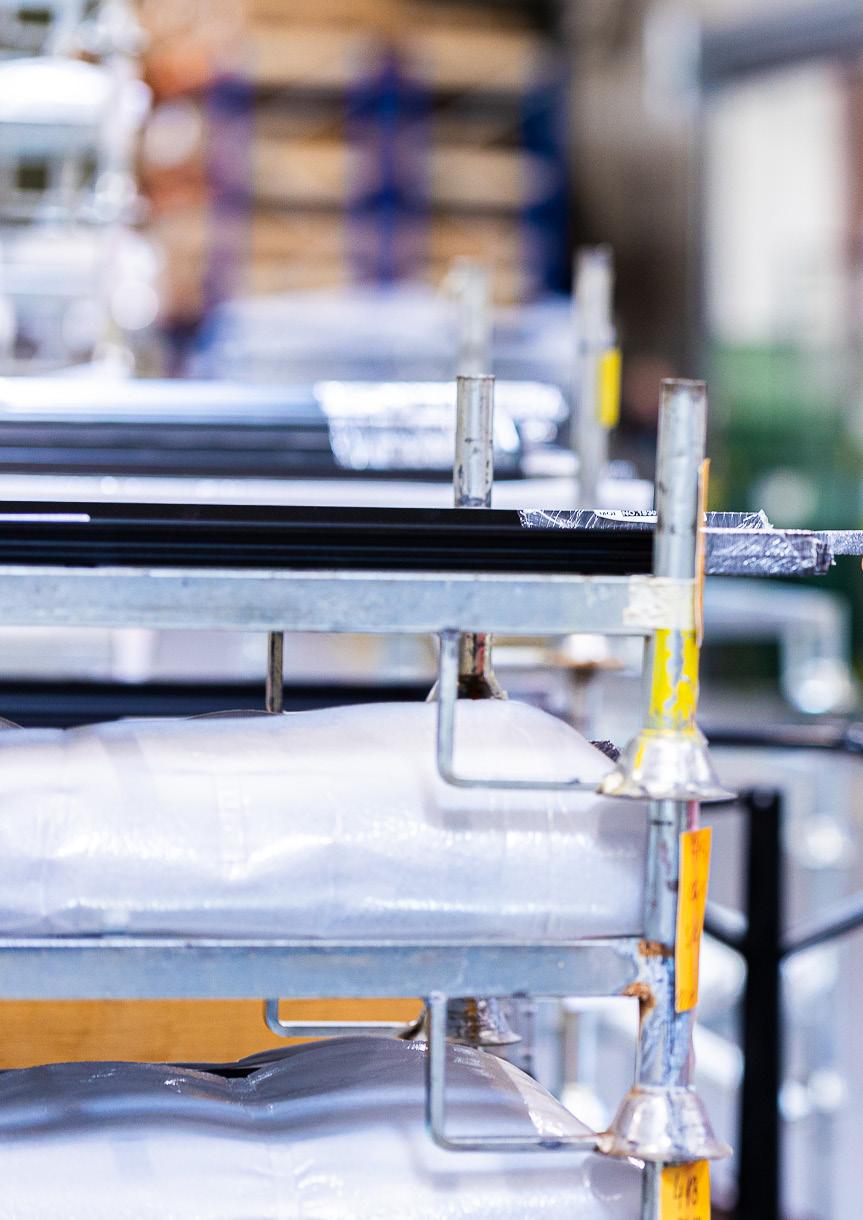
CHAPTER 3: IMPORTANT SUSTAINABILITY KEY PERFORMANCE INDICATORS

NorDan uses a 5-dimensional sustainability model (Figure 5) with an associated key performance indicator model where the most important key performance indicators within each dimension are targeted, measured and evaluated. Within each dimension, the company has selected the three most important key performance indicators (Table 6).
1 Ecological sustainability
Energy Intensity (Mwh per million MWh NOK fixed prices)
Frequency: Monthly - Yearly Target: -5% per year
2 Social sustainability Funds social sustainability (million NOK per year)
Frequency: Yearly Target: +10% per year
3 Economic sustainability
Revenue (million NOK per year)
Frequency: Monthly – Yearly Target: +10% per year
4 Employees Lost Hours Rate (Safety performance in factories measured as lost hours per 1,000 hours worked)
Frequency: Monthly – Yearly Target: -10% per year
5 Customers and stakeholders Delivery Reliability (DOT: Delivery on Time)
Frequency: Monthly – Yearly Target: >98%
Self-produced Energy from Solar Panels and hydropower plant (MWh per year)
Frequency: Monthly – Yearly Target: >5% of total consumption
Apprentices/Trainees as a Percentage of Total Employees (%)
Frequency: Yearly Target: >3%
Operating Profit EBITA (%) (million NOK per year)
Frequency: Monthly – Yearly Target: >10%
Short-term Sick Leave (%)
Frequency: Monthly – Yearly Target: < 2,5%
Share of Sold Products with U-value ≤1.0 EU Taxonomy (%)
Frequency: Monthly - Yearly Target: +5% per year
Women as a Percentage of Total Employees (%)
Frequency: Yearly Target: >30%
Solvency Ratio (%)
Frequency: Monthly - Yearly Target: >25%
myPULS Participants as a percentage of total employees (%)
Frequency: Yearly Target: >30%
Service Level (Customer complaints 31.12)
Frequency: Monthly – Yearly Target: < 1000
“FROM GLOBAL GOALS TO LOCAL ACTIONS”
Sustainability is about meeting today’s needs without compromising the ability of future generations to meet their own needs . Sustainable development has three dimensions: ecological sustainability, social sustainability, and economic sustainability . It is the interconnectedness of these dimensions that determines sustainability .
In addition to the economic, social, and climate-related impact on society, NorDan has chosen to focus on employees
Complaint Costs (% of Operating Income)
Frequency: Monthly - Yearly Target: <1%
and customers and stakeholders in its sustainability efforts and reporting . These focus areas align with NorDan’s values and support the UN’s global sustainable development goals . The UN’s 17 sustainable development goals are the world’s shared work plan to eradicate poverty, combat inequality, and address climate change .
NorDan’s selected sustainability goals, along with their corresponding measures, reflect much of the work that has
Table 6: NorDan's KPI targets.
been carried out over the years and continues to evolve and modernize in response to societal developments, as well as new requirements and directives . Beyond developing, manufacturing, and delivering high-quality windows, doors, and accessories with long expected lifespans, NorDan actively contribute to building a better society through the ripple
ECOLOGICAL SUSTAINABILITY
Ecological sustainability is about the environment. The green shift, climate adaptation, biodiversity and reduction of greenhouse gas emissions are key elements here. NorDan has a strong focus on reducing energy consumption, utilising renewable energy sources and reducing CO ₂ emissions.
NorDan Gruppen AS operates factories in locations where each unit plays a key role in the local community as a significant employer. Many of these factories are situated near residential areas, which means they are subject to environmental permits and requirements, including regulations on emissions of volatile organic compounds (VOCs) and noise. Emissions are continuously monitored and reported to the relevant municipalities or environmental authorities. In addition, NorDan carries out internal self-monitoring to ensure that each unit remains in compliance with its respective permits.
NorDan’s strategic environmental goal is to reduce resource use and minimise the environmental impact of its operations. The company works systematically to reduce energy consumption across all production sites. Several factories utilise energy recovery from wood waste, which is used for heating large parts of the facilities. Energy efficiency is tracked using metrics such as electricity consumption per window or door produced, electricity per square metre of production area, and total annual usage.
The factories have established recycling systems for production waste such as aluminium offcuts, cardboard, and plastic film. In addition, NorDan has invested in renewable energy sources
effects of the work .
The following text provides an introductory explanation of each dimension in the sustainability model, followed by a review of the associated key performance indicators (KPIs), including goals, status, and progress over time for the NorDan Group
to support its environmental goals.
Solar panel systems have been installed at factories in Sweden and Poland, with additional systems commissioned in Lithuania and Norway in 2024. During peak periods, surplus electricity is fed back into the local grid. Furthermore, NorDan owns and operates a hydropower plant at its main facility in Moi, Norway, providing a stable and renewable source of electricity directly to the site.
NorDan has invested in Guarantees of Origin (GoO) to ensure that purchased electricity is backed by renewable energy certificates. This means that a significant share of the electricity used in NorDan’s production is certified as coming from renewable sources.
NorDan has defined the following key performance indicators (KPIs) to track progress within ecological sustainability:
NorDan has chosen the following KPIs within ecological sustainability:
› Electricity consumption in factories (MWh per mNOK)
› Self-produced energy from solar panels (MWh per year)
› Share of sold products with U-value ≤1 .0 EU Taxonomy (%)
The table below shows the development from 2020.
Comment key figures
› Factory energy consumption has steadily declined as a result of targeted efficiency measures.
› The share of self-generated renewable energy is rising consistently with the rollout of additional solar and hydro solutions.
› Sales of products with low U-values (aligned with the EU Taxonomy) are on a clear upward trajectory, reflecting the shift toward more energy-efficient offerings.
SOCIAL SUSTAINABILITY
The social dimension of sustainability is fundamentally about providing a fair and solid foundation for a dignified life. This includes respect for human rights, safeguarding health and well-being, promoting diversity and inclusion, enabling access to education and training, and working to reduce social inequalities.
The social dimension of sustainability at NorDan Gruppen AS is rooted in a long-standing commitment to people, both within the organisation and in the communities where the company operates. Social sustainability includes respect for human rights, the promotion of health and well-being, equality, diversity, inclusion, education, and actions aimed at reducing social inequality. These elements are integrated into NorDan’s daily operations and long-term goals, reflecting the company’s ambition to contribute positively to society.
NorDan and its subsidiaries actively support a variety of social initiatives, including sponsorships for local activities such as children’s and youth sports. In 2023, the Group introduced a collective celebration of International Women’s Day. All subsidiaries took part, and the event is now an annual tradition across the NorDan Group. The aim is to highlight and strengthen NorDan’s role and responsibility in promoting equality, diversity, and inclusion, both internally and externally.
To reinforce these efforts, NorDan has implemented an Equality and Diversity Policy. A comprehensive employee survey has been conducted across all units to understand how employees perceive the company’s culture and work in this important area.
Since 2021, NorDan has been a main partner of Save the Children, supporting their mission to help children in vulnerable situations, with a particular focus on education. This partnership
contributes to several of the United Nations Sustainable Development Goals. In 2022, NorDan provided additional financial support to children and families affected by the war in Ukraine. In the autumn of 2023, the collaboration continued, with NorDan actively participating in Norway’s national TV campaign. Employees across the Group engaged in local activities, and the company contributed with significant financial support.
Education has always been a central focus for NorDan. At several production units, young people are given the opportunity to combine vocational education with practical work experience. The company sees education as a foundation for curiosity, innovation, and problem-solving. On a global level, access to education is essential for stability, opportunity, and sustainable development. NorDan’s tradition of supporting knowledge and innovation continues, and efforts in these areas will be further strengthened in the coming years, particularly with regard to sustainability.
To track progress within social sustainability, NorDan uses the following key performance indicators (KPIs):
› Funds social sustainability (mNOK per year)
› Apprentices as a percentage of total employees (%)
› Women as a percentage of total employees (%) The table below shows the development from 2020:
Comment key figures
› Funding for social initiatives has increased substantially, driven by new partnerships and a stronger focus on community engagement.
› The proportion of apprentices and trainee-programme participants remains stable, with further growth potential toward internal targets.
› Gender balance is improving, with a growing share of women in the workforce in line with corporate equality goals.
ECONOMIC SUSTAINABILITY
The economic dimension of sustainability is about using resources in a way that creates long-term security and value for people and society. This includes facilitating sustainable business practices, where circular economy principles play a central role.
Over the years, NorDan has developed a strong economic footprint by producing and delivering high-quality products with long life expectancy and some of the best warranties available on the market. These product characteristics contribute not only to customer value but also to more efficient use of resources across the building lifecycle.
There is currently a gap between increasing regulatory requirements for recycling of windows and doors and the availability of robust systems and viable business models for this in the markets where NorDan operates. This represents both a challenge and an opportunity. NorDan recognises that there is room for improvement in terms of recycling and reuse and is committed to strengthening its efforts in this area.
Addressing this challenge will be a strategic priority in the coming years. NorDan is committed to contributing actively to industry-wide progress by developing solutions in collaboration with suppliers, partners, and stakeholders across the construction value chain. Several initiatives were launched during the year to support this focus, as the company continues to take responsibility for reducing its carbon footprint and improving recycling practices.
Through its operations, NorDan also contributes significantly to local value creation by providing secure, long-term employ-
ment. As a major employer in many of the communities where its factories are located, NorDan plays an important role in supporting local economic resilience and development.
NorDan monitors the following key performance indicators to track progress within economic sustainability:
› Revenue (mNOK per year)
› Operating profit EBITA (%) (mNOK per year)
› Solvency ratio (%)
Key comments
› Revenues continue to grow at a steady pace and remain well within our strategic targets.
› Profitability (EBITA margin) remains robust, consistently exceeding required thresholds.
› Equity ratios have strengthened year-on-year, providing a solid financial foundation for future investments.
Key comments
› Revenues continue to grow at a steady pace and remain well within our strategic targets.
› Profitability (EBITA margin) remains robust, consistently exceeding required thresholds.
› Equity ratios have strengthened year-on-year, providing a solid financial foundation for future investments.
EMPLOYEES
One of the main pillars in NorDan Group’s sustainability work is a strong focus on people. For nearly a century, the company’s success has been built by dedicated individuals working together toward common goals. NorDan firmly believes that long-term results are created through strong collaboration and a culture where everyone is seen, heard and valued, regardless of role or position. Mutual respect, trust and teamwork across the organisation are essential to maintaining the values and performance that have shaped NorDan into the company it is today.
NorDan Group aims to be a workplace where diversity is embraced and where full equality between women and men is a natural part of the organisational culture. The company is proud of its employees and recognises that every individual plays a crucial role in creating results. Success at NorDan is built on how well people cooperate and support each other. This philosophy lies at the heart of what the company calls Perfect Samspill.
The workplace culture is defined by well-being, opportunities for personal and professional development, low levels of sick leave, and a strong focus on safety. Annual employee surveys are conducted across all subsidiaries to assess the psychosocial working environment. The results consistently show that well-being is high—something the company considers a key success factor. Where improvement opportunities are identified, targeted follow-up plans are developed to ensure
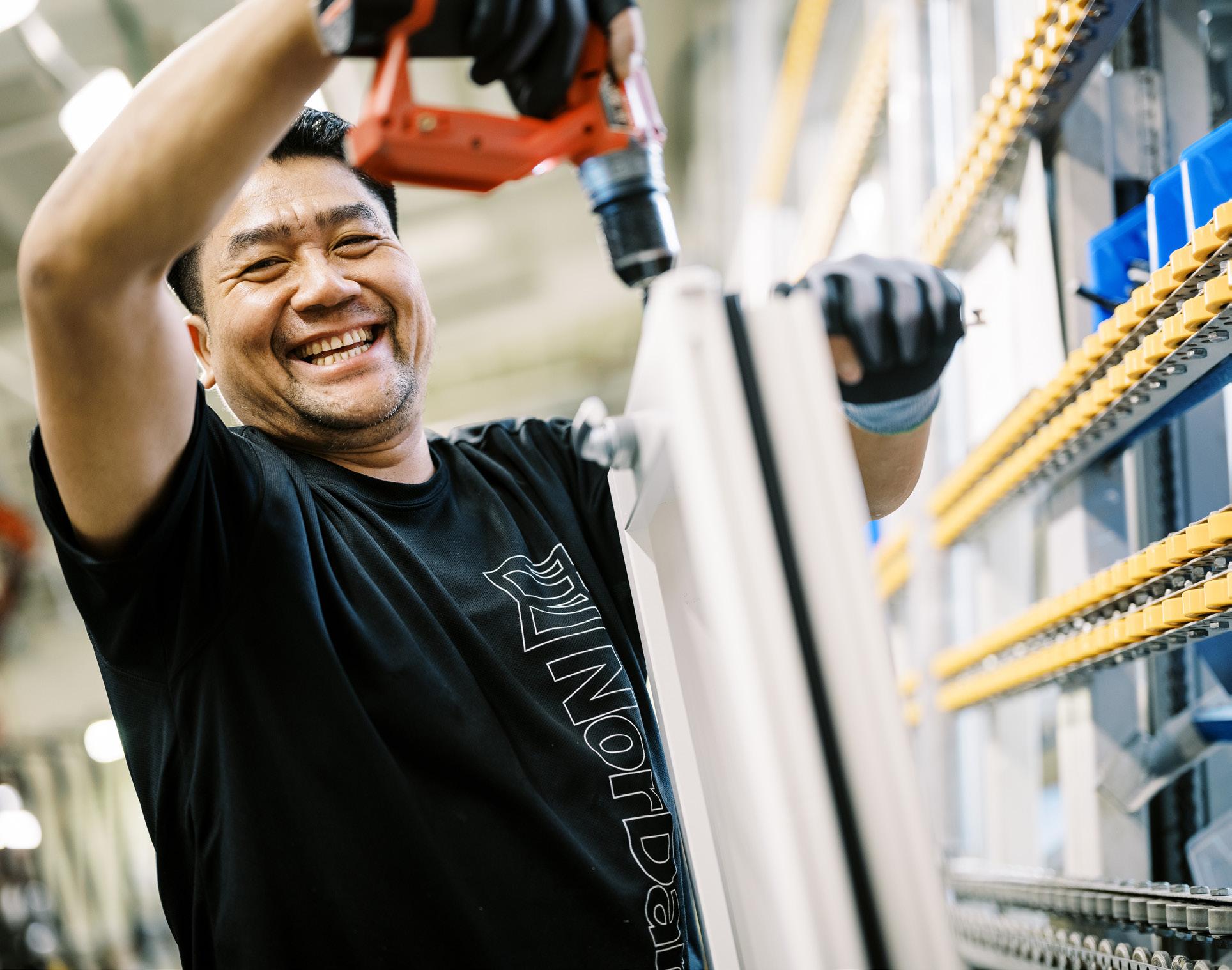
progress. Systematic employee development is a priority at NorDan. All employees take part in annual appraisal interviews, with a strong focus on competence development, motivation, and future growth. Safety First is a core value at NorDan and applies across the entire value chain—from inbound deliveries to the factories, to production, transport, construction site handling, and ultimately the use of the products by the end customer. Safety work is based on international principles, including continuous monitoring of the Lost Time Injury Frequency Rate (LTIF), which measures lost-time injuries per one million hours worked.
In recent years, NorDan has significantly expanded its safety work beyond the factory gates. The Group has implemented structured reporting routines for near-misses and injuries during transportation, at construction sites, and in the usage phase. Safety is a standing item on the agenda at all Group management meetings and other key forums.
In 2024, NorDan introduced a Group-wide Safety Policy and launched its own Health and Safety Roadmap. To further professionalise and align health, safety, and environment (HSE) efforts across the Group, NorDan appointed a dedicated QHSE Manager at Group level. This role is central to ensuring consistency, coordination, and continuous improvement in all matters related to quality, health, safety, and environment.
Sickness absence is also monitored closely and considered a key indicator of employee well-being. In order to maintain healthy attendance and provide early support, NorDan has
implemented tools that enable rapid response at the first signs of illness. Preventive and health-promoting measures are prioritised throughout the organisation.
One of the most important initiatives in this area is myPULS, which is carried out annually across all NorDan companies. It is a vital tool for gathering feedback from employees, tracking well-being over time, and identifying areas where local or Group-wide improvements are needed.
In 2025, myPULS was further expanded to include a physical activity campaign. As part of this initiative, all logged physical activity by employees is converted into monetary donations. Each week, one active participant is selected to donate a contribution to either Save the Children or a tree-planting programme. In addition to individual donations, NorDan companies also make collective contributions to both causes—underscoring the Group’s commitment to social and environmental sustainability.
To monitor progress in the employee domain, NorDan has selected the following key performance indicators (KPIs):
› Safety at factories (hours of absence due to damages per 1000 worked hours)
› Short-term sick leave (%)
› myPULS participants as a percentage of total employees (%)
Key comments
› Safety efforts in the factories have resulted in fewer incidents and lost-time injuries, with ongoing initiatives to drive further improvement.
› Short-term absenteeism has remained steady, and we are exploring additional measures to support employee wellbeing.
› Engagement in the employee activity platform myPULS has risen significantly, indicating increased overall engagement.

CUSTOMERS AND STAKEHOLDERS
NorDan’s vision and goal is to achieve continuous improvement through “Perfekt Samspill” (Perfect Interaction). This philosophy applies across every part of the organisation: between employees and production technology, between NorDan and its customers, and between the product and the end user. The goal is continuous improvement, where every window and door reflects the company’s commitment to functional design, high performance, and long service life.
Delivering reliable quality is essential to both operational efficiency and customer satisfaction. NorDan works actively to reduce the cost of complaints and the environmental impact of faulty production. Windows and doors are customised to meet both regulatory requirements and the specific needs of the builder, supported by a robust system of quality assurance throughout the value chain. Key procedures include side-byside checks during tendering and order placement, built-in control functions in the Pi system, factory-level self-inspections, randomised product checks, and final inspections before delivery. These measures are designed to ensure that the right product reaches the customer and that resource use is minimised throughout production
To monitor progress in this area, NorDan tracks the following key performance indicators (KPIs):
› Delivery On-Time (DOT) reliability (%)
› Service level (number of open complaints)
› Complaint costs (% of operating income)
Complaint costs as a share of operating income have increased and remain above the internal benchmark, highlighting the importance of streamlining processes and bolstering preventive measures.
Delivery precision has improved markedly in recent years thanks to stronger production planning, logistics coordination, and order handling. We strive for further improvement, and our long-term DOT target remains 98 %.
Comment key figures
› Complaint costs as a share of operating income have increased and remain above the internal benchmark, highlighting the importance of streamlining processes and bolstering preventive measures.
› Delivery precision has improved markedly in recent years thanks to stronger production planning, logistics coordination, and order handling. We strive for further improvement, and our long-term DOT target remains 98 %.

CHAPTER 4: ADDITIONAL FOCUS AREAS IN 2024

SUPPLIER COLLABORATION AND TRANSPARANCY COMPLIANCE
NorDan maintains long term partnerships with more than 300 suppliers, built on mutual trust, clear expectations, and responsible business practices. All main suppliers are required to sign NorDan’s Supplier Code of Conduct, committing to internationally recognized standards for human rights, labor conditions, environmental responsibility, and anti-corruption. These principles are reinforced through contractual terms and continuous engagement with each supplier.
A structured prequalification and monitoring process including documentation reviews, self-assessments, third party certifications, audits, and regular dialogue ensures that suppliers meet these standards in practice, not just in writing. Particular attention is given to regions and activities with elevated risk such as component sourcing from China and subcontracted installation work in markets like Ireland and Norway, where oversight of employment conditions, health and safety, and fair wages is essential.
NorDan’s due diligence efforts follow the OECD Guidelines for Multinational Enterprises and are reported annually in accordance with the Norwegian Transparency Act. These reports describe how risks related to human rights and working conditions are systematically identified, evaluated, and followed
up through targeted action. The company also maintains a regularly updated supplier register and monitors key risk indicators to focus on areas with the highest potential for impact. By combining clear policies with strong supplier engagement and effective governance, NorDan supports a resilient and responsible supply chain aligned with its sustainability goals and long term business success. From 2025, NorDan will further strengthen its due diligence practices by implementing the SaaS solution to streamline supplier assessments, improve risk analysis, and enhance transparency across the supply chain. By combining clear policies with strong supplier engagement, digital tools, and effective governance, NorDan supports a resilient and responsible supply chain aligned with its sustainability goals and long term business success.

Figure 14: Senior representatives from NorDan Group and Saint-Gobain Poland sign a strategic partnership agreement, marking common joint commitment to develop and market low-carbon window solutions across Northern Europe.
WING-TO-WING RESPONSIBILITY
NorDan’s “wing-to-wing” responsibility represents a holistic and proactive approach to ethical, social, and environmental performance throughout the entire value chain—from raw material sourcing to the safe use of finished products on building sites. This concept is rooted in NorDan’s belief that responsibility does not stop at the factory gate, but extends to everyone involved in the life cycle of its windows and doors.
The approach begins with the careful selection of raw materials and trusted suppliers, continues through energy-efficient and safe manufacturing processes, and includes safe handling, packaging, and transportation routines. On-site installation whether performed by NorDan or subcontractors is subject to clear safety requirements, employment standards, and operational follow-up to ensure fair and decent working conditions. Product quality and user safety are validated through internal testing, certifications, and robust customer support systems.
Internally, NorDan applies strong governance frameworks, guided by its core values and anchored in international standards
such as the OECD Guidelines and the UN Guiding Principles on Business and Human Rights. Risks are regularly assessed, monitored, and followed up through corrective actions when necessary, supported by clear policies, training, and a groupwide incident reporting system.
By embedding this wing-to-wing perspective into its day-today operations and strategic decisions across all factories, markets, and supplier relationships, NorDan ensures that ethical responsibility, safety, and transparency are not side projects, but a central part of how the company operates, competes, and builds long-term trust with employees, customers, and society.
Figure 15: Wing-to-wing responsibilty in NorDan Group.
FACTORY OF THE YEAR AWARD 2024
The 2024 NorDan Factory of the Year award was shared by Viking Industrier in Lithuania and our Wolsztyn factory in Poland. This prestigious accolade evaluates all 12 NorDan factories across key criteria - safety, profitability, product quality, employee absenteeism and delivery precision. Many of these measures are closely linked to sustainability, underscoring that Viking and Wolsztyn represent two of our most environmentally responsible production sites. To earn this recognition, each
factory must deliver consistently high performance in every category and rely on dedicated teams who set and achieve clear goals, uphold rigorous safety standards, and execute daily processes with precision.
Congratulations to Viking Industrier and the Wolsztyn factory on this well-deserved honor!



MERGER IN DENMARK: STRENGTHENING OUR SUSTAINABLE FOOTPRINT
Last year, STM Vinduer A/S and NorDan Vinduer A/S merged to form NorDan Danmark A/S - a move that has been extremely well received in the Danish market.
By bringing production together on Langeland with sales and R&D expertise in Aarhus and Copenhagen, NorDan has gained increased capacity, shorter lead times, and an even closer dialogue with customers. STM Vinduer’s strong position in Southern Denmark since 1972 now merges seamlessly with NorDan’s solid growth across Scandinavia, uniting the very best of both companies under one powerful brand: NorDan Danmark.
Under the NorDan umbrella, the doors and windows made at the Rudkøbing facility now benefit from our dedicated focus on durability, performance, and sustainability. Customers can choose from the cost-competitive Neo series or NTech and AluTech line with its 30-year warranty and Swan-label certification, confident that they are investing in products engineered
for longevity and low environmental impact. STM will for now continue to produce wood and timber-aluminium windows, while NorDan offers both pure aluminium systems and its NTech timber-aluminium series. Together, this complementary range creates a truly versatile portfolio enabling NorDan Danmark to match every project’s performance, aesthetic and sustainability requirements for private homeowners and professional builders alike.
NorDan operates manufacturing facilities across five countries, ensuring NorDan produce close to our key markets. This approach cuts out long transports, lowering CO₂ emissions and cutting delivery times by several days.
